The 1990s were a wild west for music, a decade where genres collided and pop music absorbed influences from every corner. Turn on the radio, and you’d be bombarded with an exhilarating mix – grunge angst battling hip-hop swagger, dance-pop euphoria clashing with electronica experimentation. From the raw energy of riot grrrl to the polished sheen of TRL mainstays, the 90s music scene was a glorious free-for-all. Trying to distill such a vibrant era into a single list is a daunting task – you could easily compile hundreds of amazing tracks from just one year, say, the summer of ’94. Yet, these 50 essential 90’s pop songs manage to capture the decade’s explosive musical landscape, showcasing the hits, the hidden gems, the cult favorites, the dance floor anthems, the guitar-driven rockers, and the karaoke staples that defined the era. So, buckle up and get ready for a sonic journey through the best of 90’s pop. Let the entertainment begin.
Fuzzy, “Flashlight” (1994)
Emerging from Boston’s burgeoning alternative scene, Fuzzy delivered a fleeting moment of brilliance with “Flashlight.” This quasi-grunge track, featuring a melancholic female vocal and cryptic lyrics about navigating darkness, became a cult favorite thanks to late-night MTV airplay on 120 Minutes. It’s a testament to the countless forgotten gems from the post-Nirvana major-label feeding frenzy, begging the question: how many more near-perfect quasi-grunge songs are buried on dusty albums, waiting to be rediscovered? While few may reach this level of brilliance, the search is always worthwhile.
Britney Spears, “Sometimes” (1999)
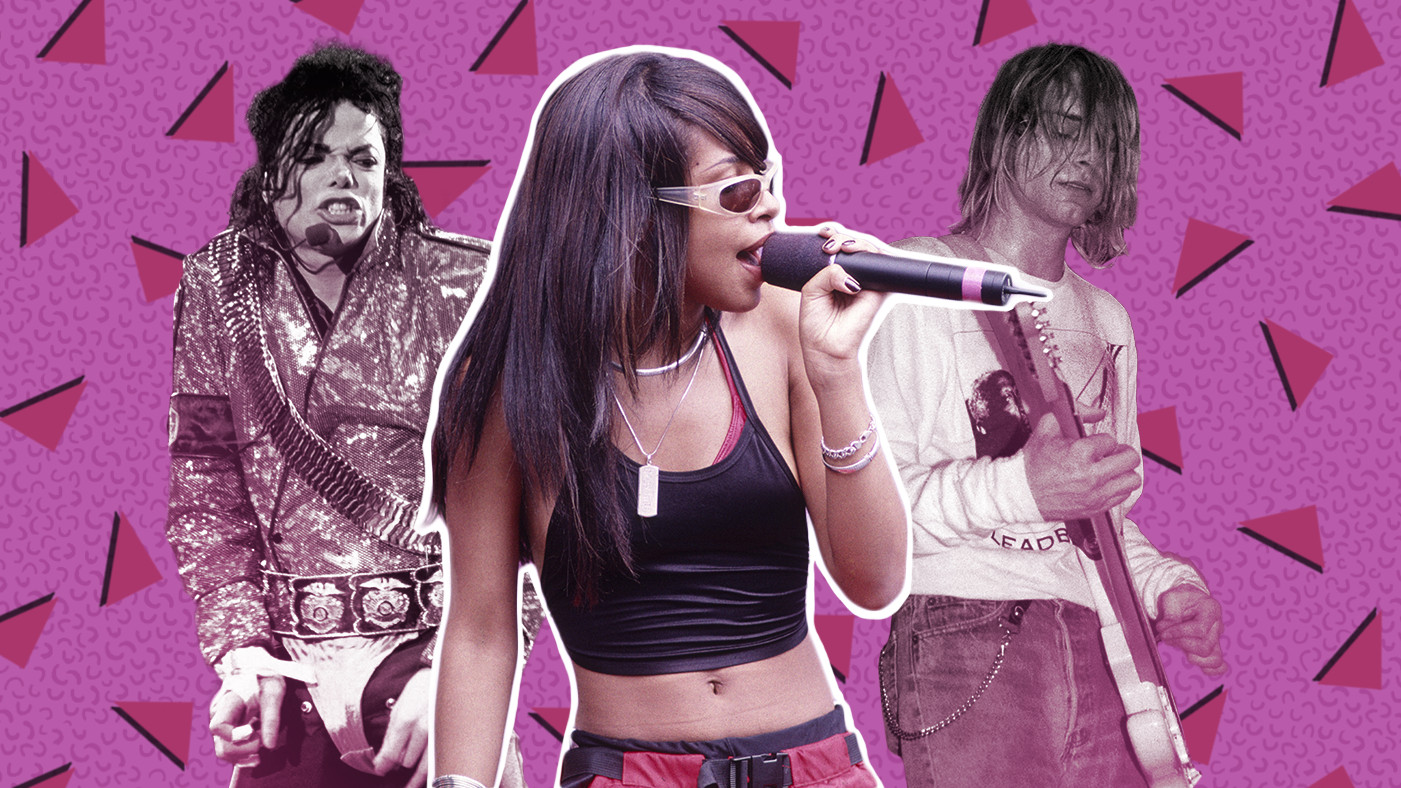 Britney Spears Sometimes 90s pop song
Britney Spears Sometimes 90s pop song
“Sometimes” marked Britney Spears’s second chart-topping single, solidifying her status as a pop music force. After the explosive debut of “…Baby One More Time,” some questioned her staying power. “Sometimes,” a Total Request Live staple, silenced the doubters. It showcased a softer, romantic side of Britney and established her blueprint for the modern pop star era. This song wasn’t just a hit; it was a declaration: Britney was here to stay, leading pop music into the 21st century.
The Offspring, “Self Esteem” (1994)
The Offspring, hailing from Orange County’s punk rock scene, unexpectedly achieved multiplatinum success with “Self Esteem.” This catchy anthem, disguised as a punk rock tune, explores themes of masochism and relationship dynamics with surprising relatability. The lyric, “I may be dumb, but I’m not a dweeb,” resonated with a generation, becoming an ironic badge of honor. Unless, of course, you were a “dumb dweeb,” in which case, you might just be the subject of this enduring 90’s pop-punk hit.
Selena, “Fotos y Recuerdos” (1994)
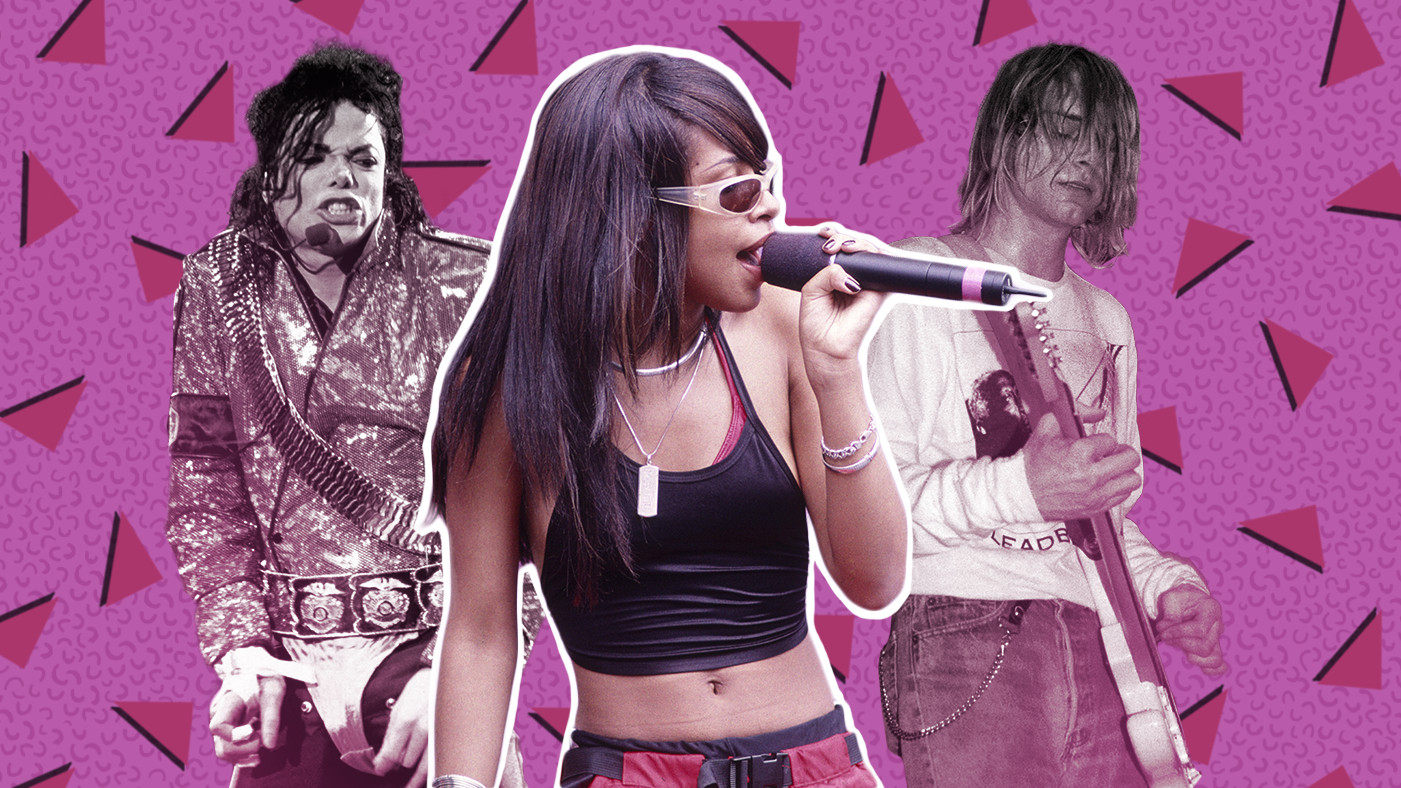 Selena Fotos y Recuerdos 90s Latin pop song
Selena Fotos y Recuerdos 90s Latin pop song
Selena, the beloved Tejano music icon, reimagined The Pretenders’ “Back on the Chain Gang” with “Fotos y Recuerdos.” Translated into Spanish, the song became a crossover hit, reaching the Top Five on the Billboard Latin charts during the week of her tragic passing. This poignant rendition showcased Selena’s versatility and enduring appeal, bridging cultural gaps and cementing her legacy in 90’s pop and Latin music history.
Silver Jews, “Random Rules” (1998)
Imagine a dive bar in purgatory at closing time. That’s the sonic landscape of Silver Jews’ “Random Rules.” David Berman’s signature drawl delivers fractured, philosophical musings over a honky-tonk backdrop. This track, a blend of indie rock and wry observation, embodies the Silver Jews’ unique charm and stands as a testament to their understated influence on 90’s alternative pop.
Lil Kim With Lil Cease, “Crush on You (Remix)” (1997)
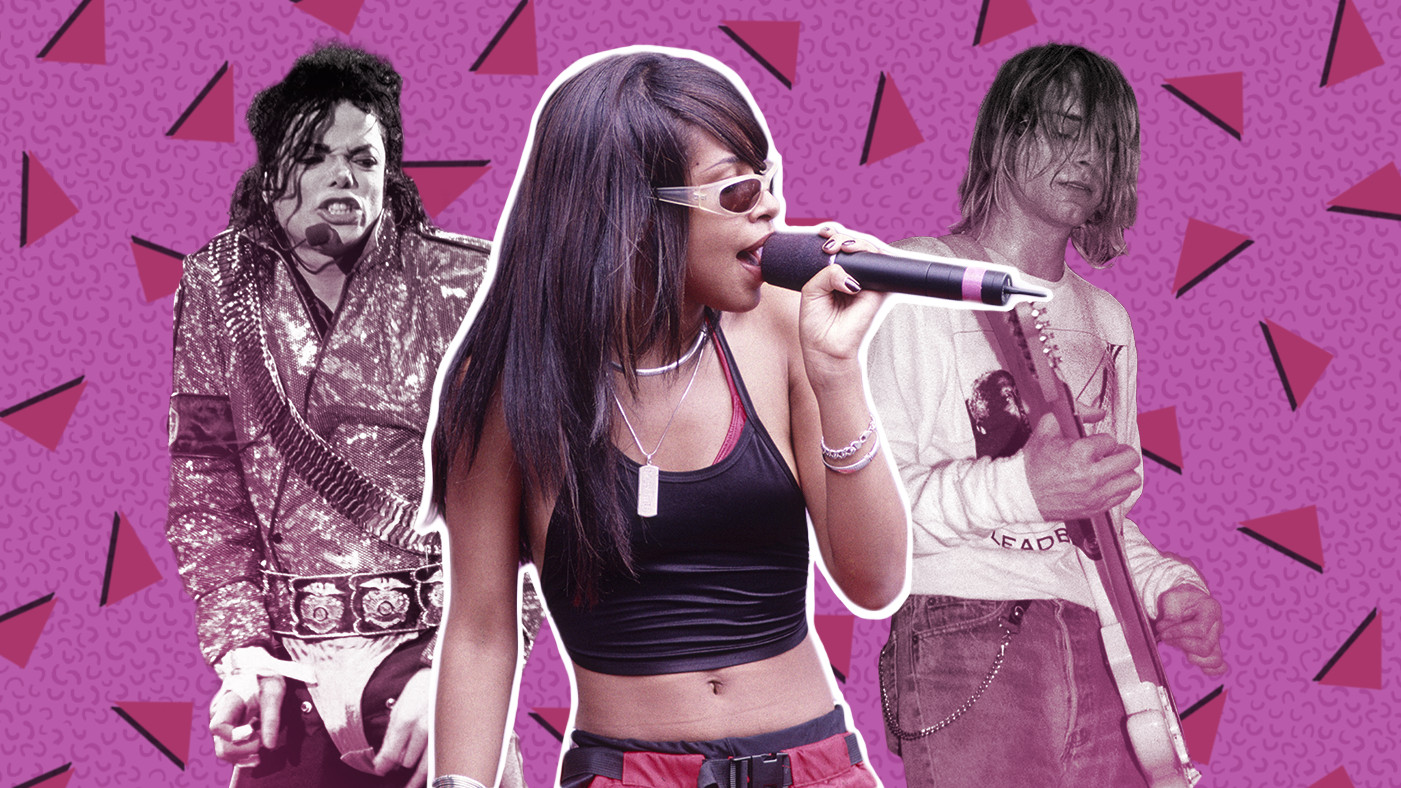 Lil Kim Crush on You 90s hip hop pop song
Lil Kim Crush on You 90s hip hop pop song
“Crush on You (Remix)” is Bad Boy Records at its peak. A haunting synth loop sets the stage for Lil Cease, carrying the torch from Biggie, and the undeniable Queen Bee herself, Lil’ Kim. Her fierce confidence and flamboyant style, showcased in lines about wigs and furs, are iconic. The call-and-response, “Shall I proceed?” “Yes, indeed!” encapsulates the song’s playful yet powerful energy, defining 90’s hip-hop infused pop.
Stereolab, “Cybele’s Reverie” (1996)
“Voulez vous coucher avec le revolution?” Stereolab, European masters of vintage keyboard aesthetics, crafted albums of hypnotic, politically charged trance-prog. “Cybele’s Reverie” represents the pinnacle of their sound. This track, a blend of French pop, krautrock rhythms, and leftist ideology, is both intellectually stimulating and sonically captivating, a hallmark of 90’s art-pop.
Supergrass, “Alright” (1995)
 Supergrass Alright 90s Britpop song
Supergrass Alright 90s Britpop song
Choosing just one song from the Clueless soundtrack is a near-impossible task, much like deciphering the appeal of a Pauly Shore movie. However, Supergrass’ “Alright,” featured prominently in the film, perfectly encapsulates the youthful exuberance and carefree spirit of the 90s. This Britpop anthem, with its infectious energy and optimistic lyrics, became synonymous with the decade’s slacker generation.
Ace of Base, “The Sign” (1994)
Ace of Base, the world’s most successful Swedish reggae-influenced band, achieved global superstardom with “The Sign.” The lyrics, while sometimes grammatically quirky (“Life is demanding/Without understanding”), added to the song’s unique charm. This undeniably catchy tune became a defining sound of 90’s Euro-pop, proving that even slightly unconventional English lyrics couldn’t diminish a truly great hook.
Sophie B. Hawkins, “Damn I Wish I Was Your Lover” (1992)
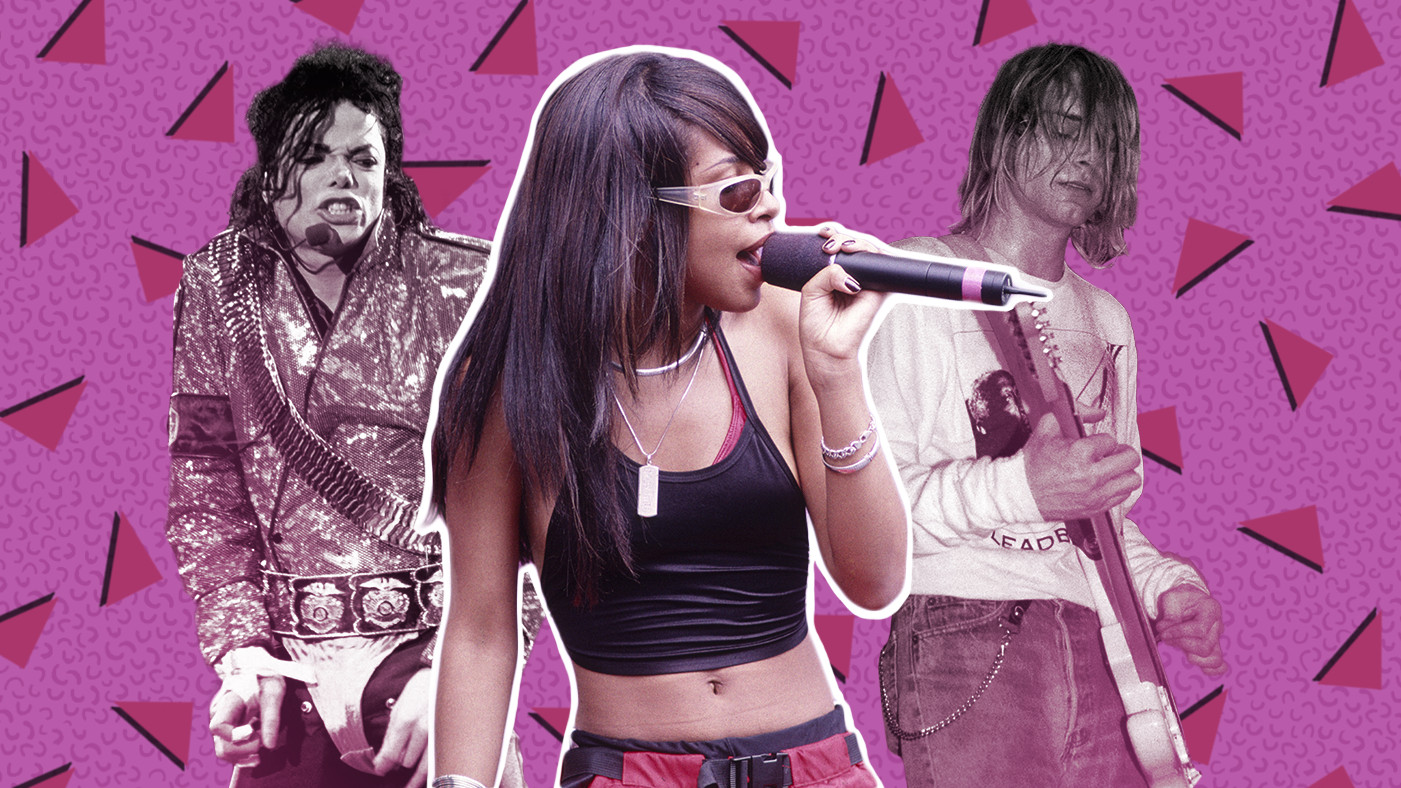 Sophie B Hawkins Damn I Wish I Was Your Lover 90s pop rock song
Sophie B Hawkins Damn I Wish I Was Your Lover 90s pop rock song
Sophie B. Hawkins, a bohemian free spirit, poured raw emotion into “Damn I Wish I Was Your Lover.” Her powerful vocals convey the agony of unrequited desire, making the word “damn” resonate with unprecedented intensity. This passionate ballad, a blend of pop and raw vulnerability, showcased a different side of 90’s female singer-songwriters, moving beyond bubblegum pop.
Big Pun Feat. Joe, “Still Not a Player” (1998)
Uptown flavor meets R&B smoothness in Big Pun and Joe’s “Still Not a Player.” The late, great Bronx MC and the silky-voiced R&B crooner team up over a lover’s rock piano sample. Pun’s lyrical prowess woos “highly intelligent bachelorettes” with a pan-cultural chant (“boricua, morena“) and confident swagger. This track exemplifies 90’s hip-hop’s crossover appeal, blending tough-guy persona with mainstream romantic sensibilities. R.I.P., Pun – forever a legend.
Sebadoh, “Brand New Love” (1992)
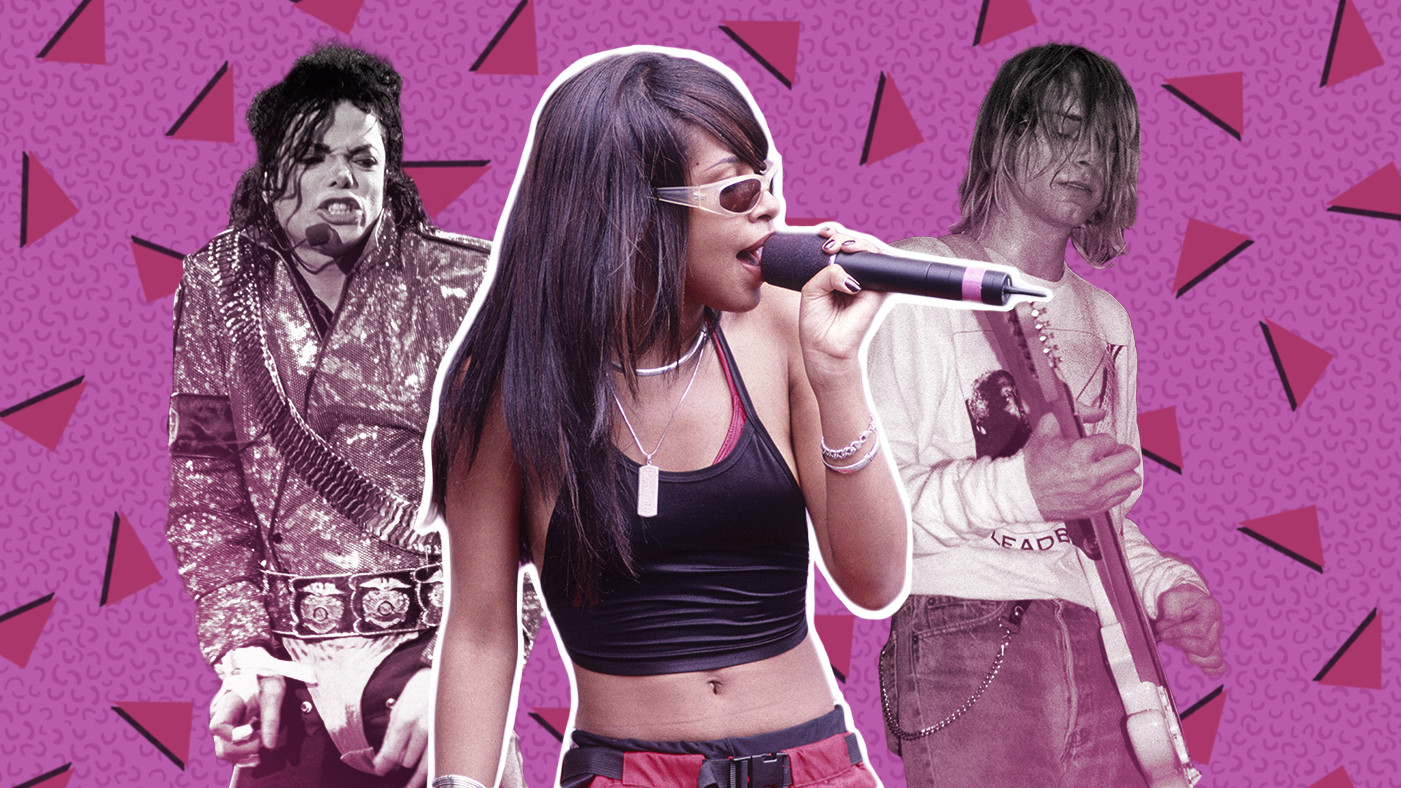 Sebadoh Brand New Love 90s indie pop song
Sebadoh Brand New Love 90s indie pop song
Sebadoh, known for their lo-fi punk aesthetic, took a surprising step towards vulnerability with “Brand New Love.” This folk-tinged ballad builds from gentle acoustic strumming to feedback-laced catharsis, exploring the daunting yet exhilarating experience of opening up to new emotions. It’s a raw and honest portrayal of human connection, a standout in 90’s indie pop.
Geto Boys, “Mind Playing Tricks on Me” (1991)
“Mind Playing Tricks on Me” remains one of the most chilling and poignant gangsta rap narratives ever recorded. The Geto Boys delve into paranoia, mental anguish, and the harsh realities of street life. Willie D’s visceral delivery, culminating in the image of bloody fists pounding concrete over a haunting jazz-fusion loop, creates an unforgettable and disturbing masterpiece of 90’s hip-hop.
New Radicals, “You Get What You Give” (1998)
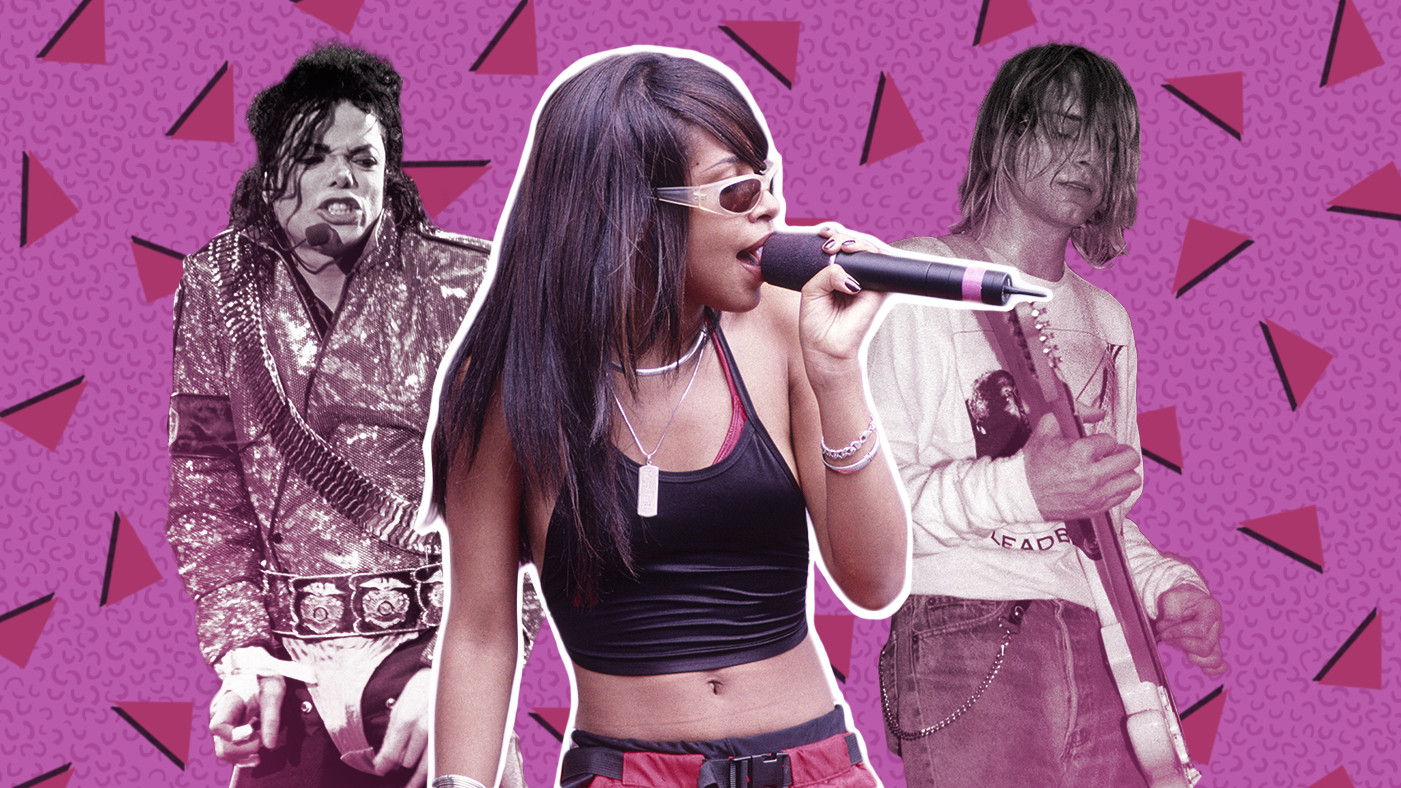 New Radicals You Get What You Give 90s one hit wonder pop song
New Radicals You Get What You Give 90s one hit wonder pop song
New Radicals are the quintessential one-hit wonder, delivering a stadium-sized prom anthem with “You Get What You Give.” Complete with a bucket-hat-wearing frontman, a mall-riot-themed video, and cheeky name-drops of Beck, Hanson, Courtney Love, and Marilyn Manson, the song was a glorious burst of pop energy. Then, just as quickly, they vanished. Gregg Alexander, the New Radicals mastermind, later received an Oscar nomination for Begin Again in 2015, sadly sans bucket hat on the red carpet.
Portishead, “Glory Box” (1994)
Portishead’s “Glory Box” is the epitome of elegant trip-hop melancholy. Beth Gibbons’s haunting vocals, drenched in sorrow, intertwine with a timeless sample of Isaac Hayes’s hazy 70s funk. This track, a blend of downtempo beats, cinematic atmosphere, and soulful vocals, became a defining sound of the 90’s Bristol scene and its global impact on electronic-infused pop. The sample was famously revived in 2015 by Alessia Cara, demonstrating the song’s enduring appeal across generations.
Sheryl Crow, “If It Makes You Happy” (1996)
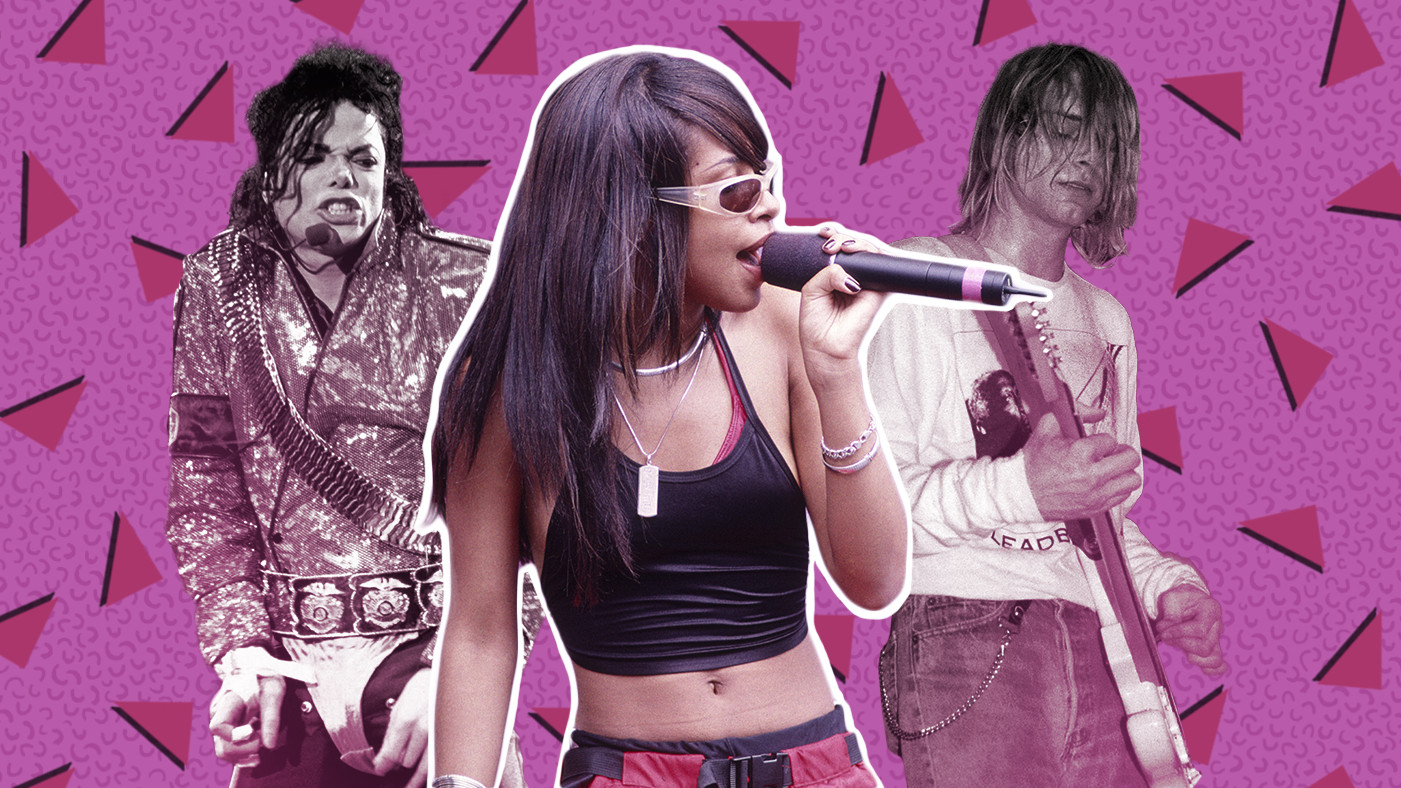 Sheryl Crow If It Makes You Happy 90s rock pop song
Sheryl Crow If It Makes You Happy 90s rock pop song
Sheryl Crow captivated audiences with the relatable and slightly grungy charm of “If It Makes You Happy.” The line about “scraping the mold off the bread” perfectly encapsulates the 90s vision of rock & roll slackerdom. This song, with its blend of catchy melodies and introspective lyrics, solidified Crow’s place in 90’s pop-rock royalty.
En Vogue, “Don’t Let Go (Love)” (1996)
En Vogue, the queens of funky divas, delivered their steamiest slow jam with “Don’t Let Go (Love).” Exploring themes of love, heartbreak, and emotional vulnerability, the song is a masterclass in vocal harmonies and sensual R&B. The standout moment, “If I could wear your clothes… I’d pretend I was you… and looooose controoool!” perfectly captures the song’s passionate intensity, making it a 90’s R&B classic.
Helium, “XXX” (1994)
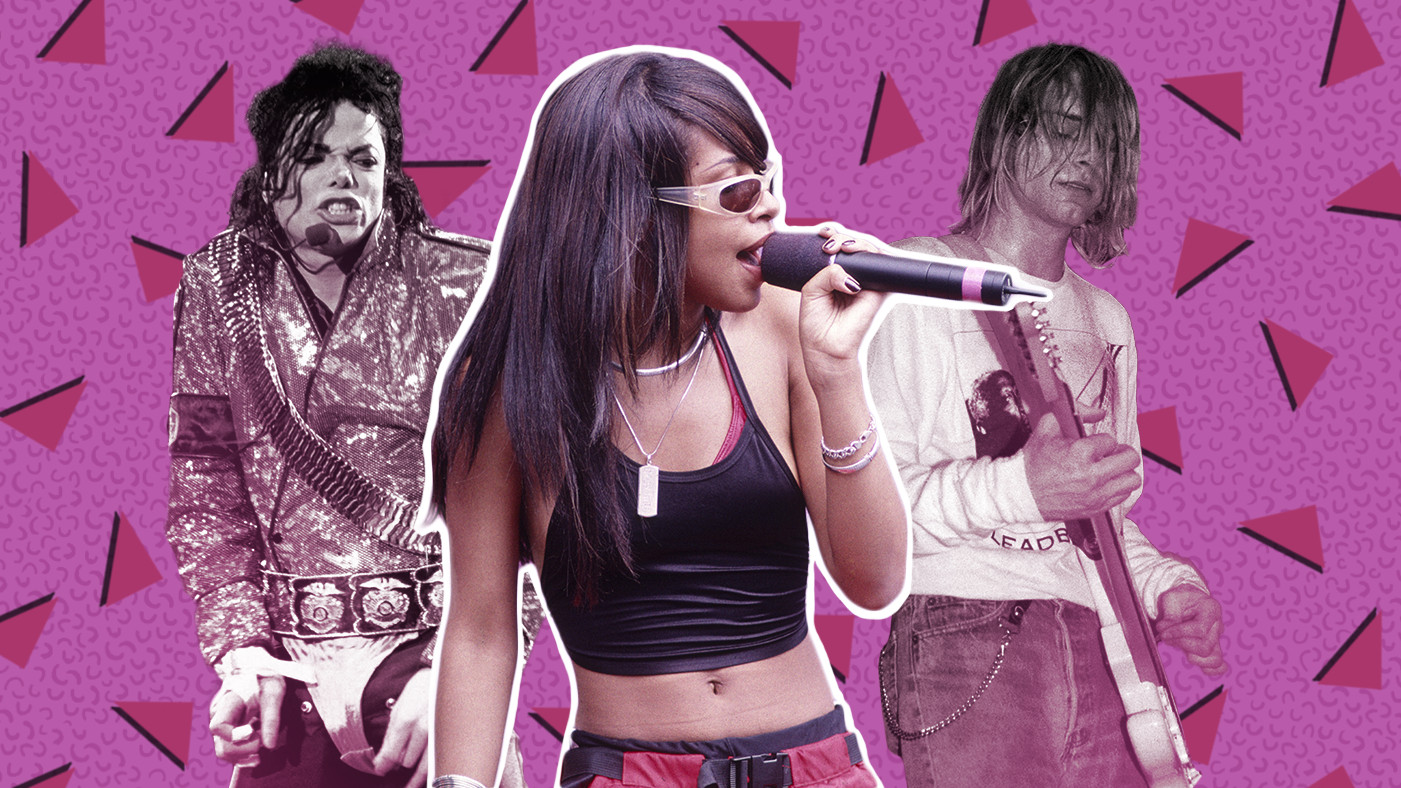 Helium XXX 90s indie rock song
Helium XXX 90s indie rock song
Mary Timony, a guitar virtuoso later known for Wild Flag and Ex Hex, showcased her distinct talent in Helium’s “XXX.” This seemingly sweet ballad takes a dark turn with lyrics about street harassment and lethal guitar skills. Timony’s deadpan delivery of lines like, “My heart is a cab…your love is a fad…and you’re a draaag!” adds to the song’s darkly humorous and feminist edge, making it a unique entry in 90’s indie rock.
Foxy Brown With Jay Z, “I’ll Be” (1996)
Foxy Brown and Jay-Z teamed up for the assertive and seductive “I’ll Be.” Foxy declares, “I’m 2 live, nasty as I wanna be,” while Jay-Z, fresh off Reasonable Doubt, playfully retorts, “Don’t shake your sassy ass in front of me.” This collaboration highlighted Jay-Z’s early dominance and Foxy Brown’s emergence as a force in hip-hop. It was a glimpse into the future dominance of both artists in the decades to come.
Underworld, “Born Slippy .Nuxx” (1996)
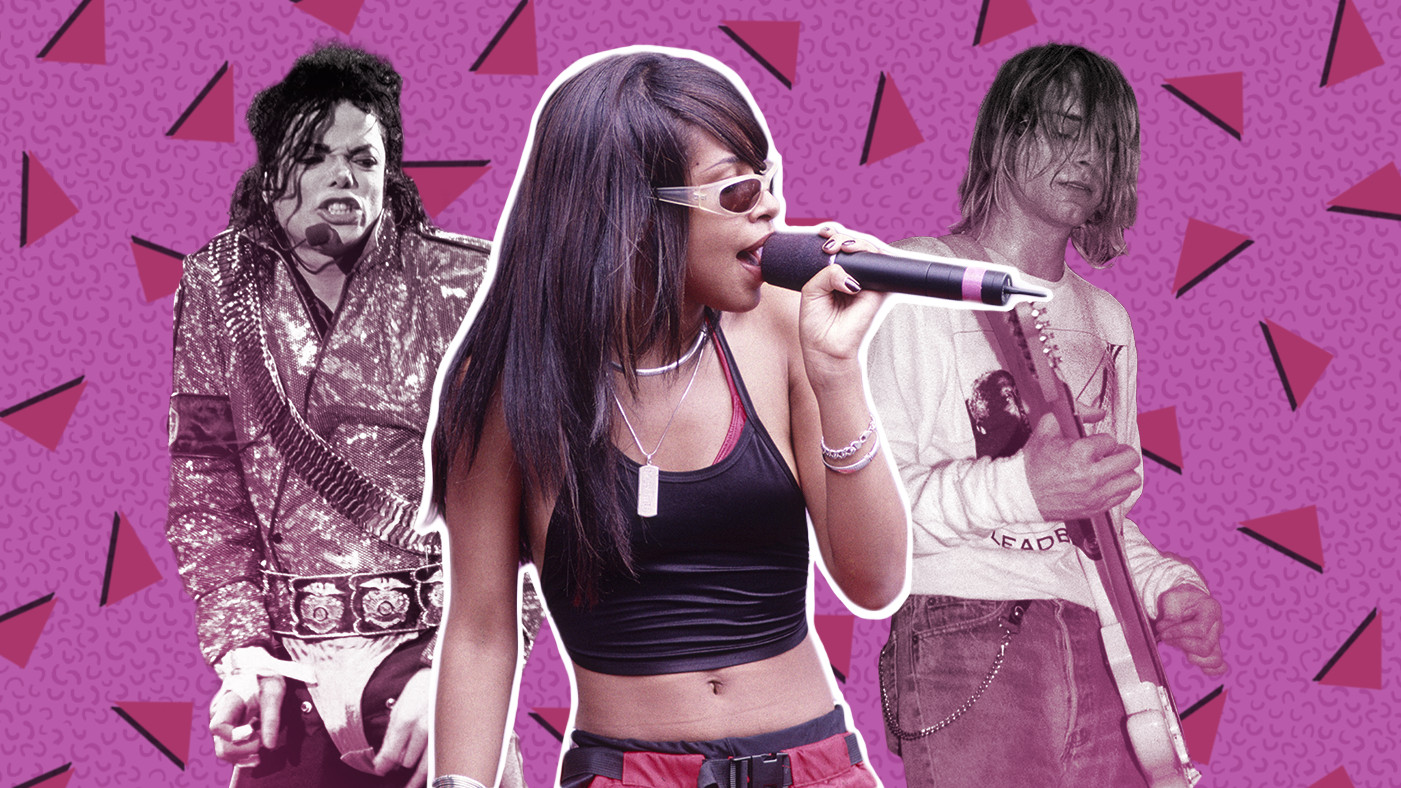 Underworld Born Slippy 90s electronic pop song
Underworld Born Slippy 90s electronic pop song
“Born Slippy .Nuxx” is a sonic explosion of techno sensory overload. Its inclusion in the film Trainspotting, featuring the iconic “lager lager lager lager” chant, propelled it to mainstream popularity. However, the track’s frenetic energy suggests that lager might be one of the tamer substances involved in its creation. This anthem became synonymous with 90’s rave culture and the crossover appeal of electronic music.
Sir Mix-A-Lot, “Baby Got Back” (1992)
“Baby Got Back” – the anthem that needs no introduction. Sir Mix-A-Lot’s unapologetic celebration of curves became a cultural phenomenon. Almost everyone in the English-speaking world can quote lines from this pro-body positivity manifesto, even decades later. This track remains a hilarious and important moment in 90’s pop culture.
Fiona Apple, “Paper Bag” (1999)
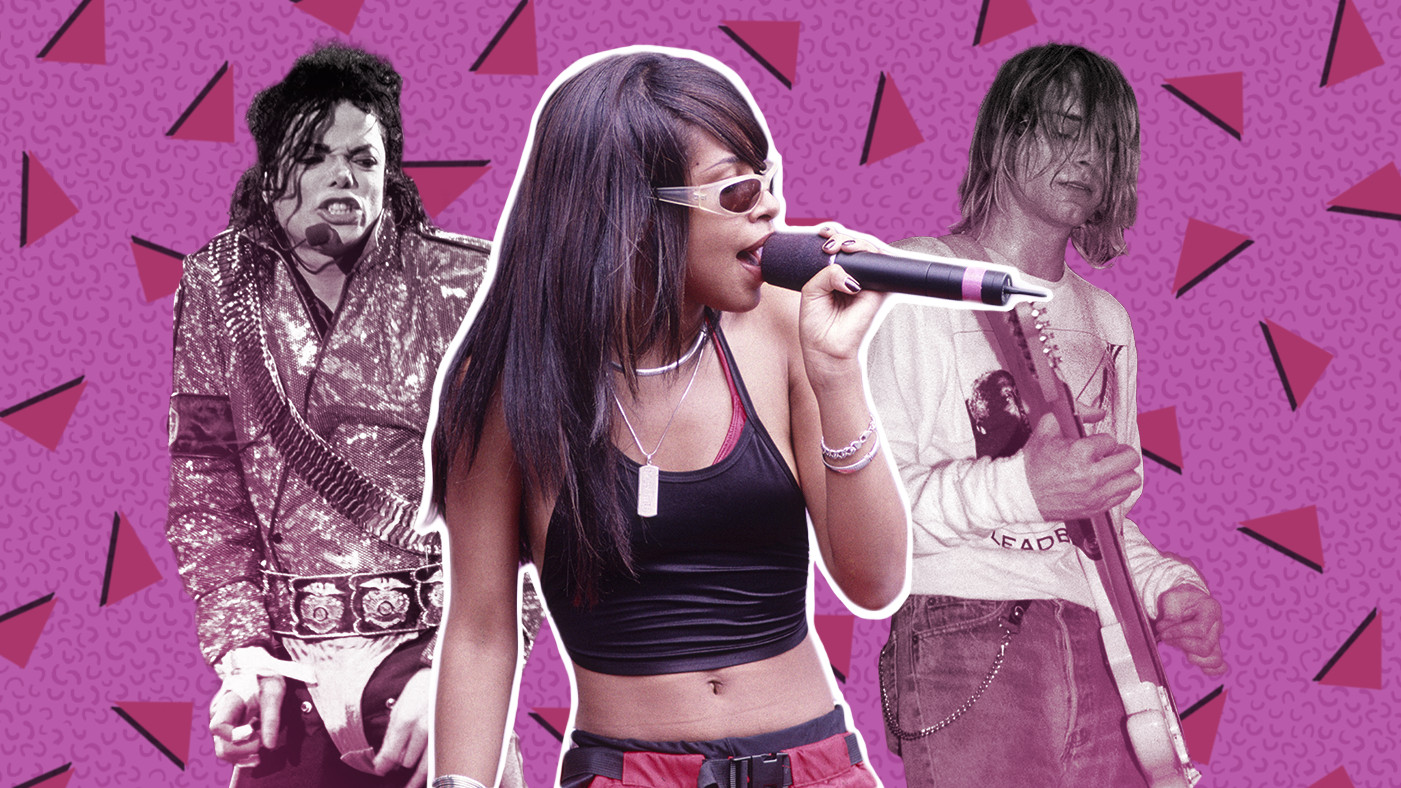 Fiona Apple Paper Bag 90s alternative pop song
Fiona Apple Paper Bag 90s alternative pop song
Fiona Apple’s “Paper Bag” is a poignant and quirky exploration of disillusionment in love. The line, “He thought he was a man, but he was just a little boy,” encapsulates the song’s central theme. Apple’s raw vocals and unconventional piano arrangement create a uniquely captivating and emotionally resonant track, a standout in 90’s alternative pop.
Weezer, “Pink Triangle” (1996)
Years before “overshare” became a common term, Rivers Cuomo of Weezer took lyrical vulnerability to a new level with “Pink Triangle.” This love song, characterized by straight-dude cluelessness, explores themes of missed signals and awkward self-awareness. Cuomo’s self-deprecating lyrics and Weezer’s signature power-pop sound combine to create a relatable and enduring 90’s alternative rock hit.
Daft Punk, “Around the World” (1997)
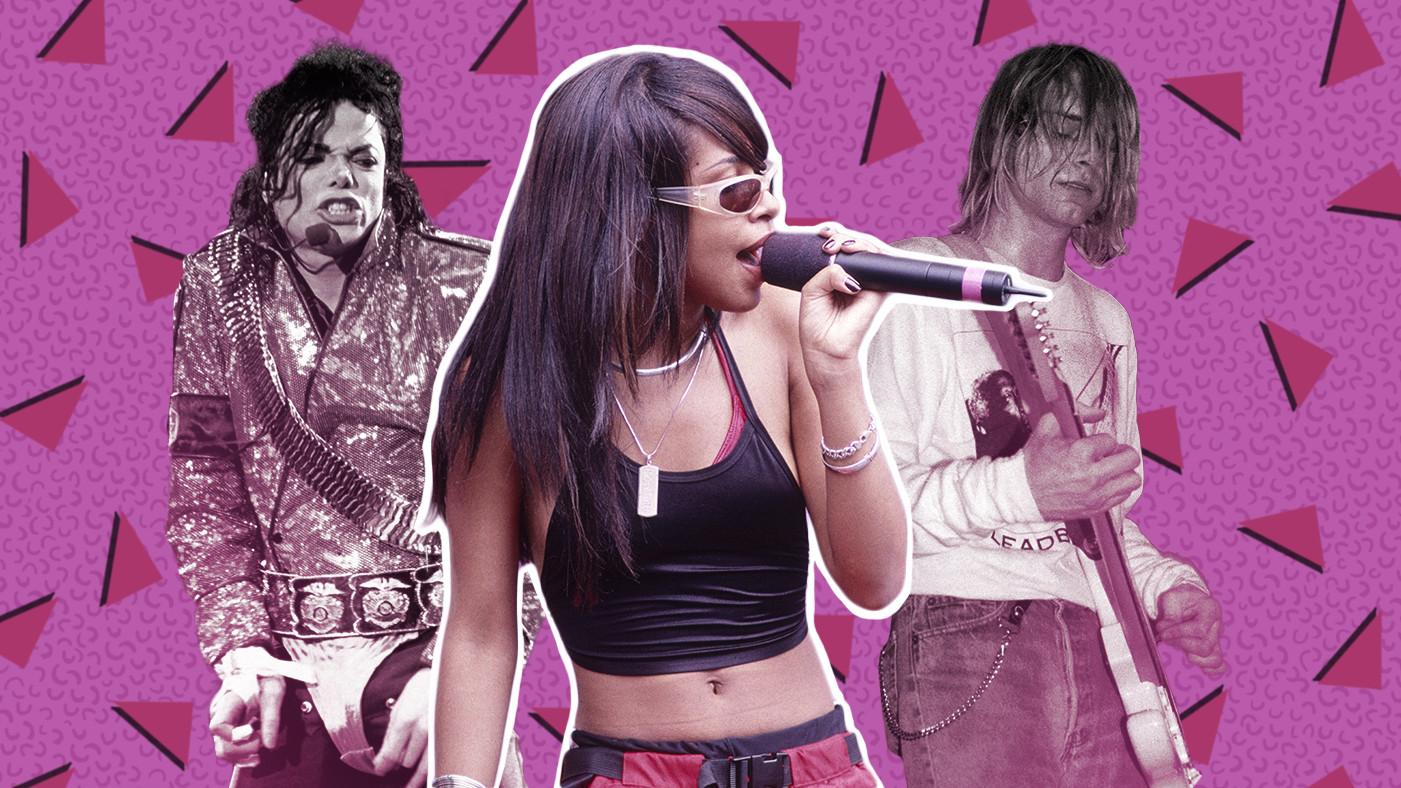 Daft Punk Around the World 90s electronic dance pop song
Daft Punk Around the World 90s electronic dance pop song
Daft Punk, the enigmatic French techno duo, took the Chic “Good Times” bassline on an interstellar journey with “Around the World.” Their signature filter-house sound, instantly recognizable and endlessly imitated, launched countless electronic music trends. This track, both minimalist and hypnotic, became a global dance anthem and defined a generation of 90’s electronic pop.
Natalie Imbruglia, “Torn” (1998)
“Torn” exists in a karaoke category of its own. 1998 might just be the greatest summer for karaoke anthems, and Natalie Imbruglia’s “Torn” is a prime example. This enduring tear-jerker, with its soaring vocals and heartbroken lyrics, remains a karaoke staple. However, considering Imbruglia’s list of celebrity exes, one realizes she’s probably doing just fine without needing anyone’s shoulder to cry on.
Harvey Danger, “Flagpole Sitta” (1998)
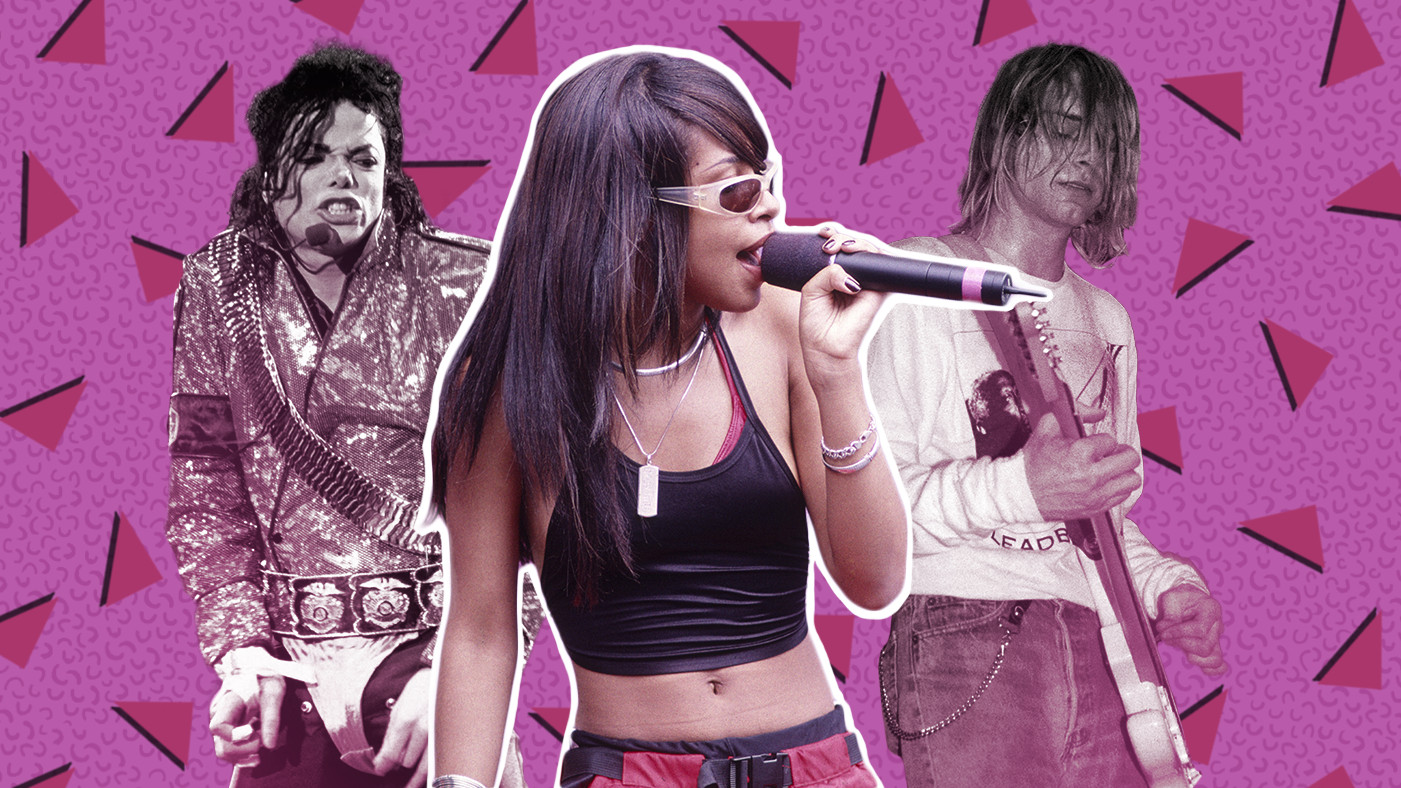 Harvey Danger Flagpole Sitta 90s alternative rock song
Harvey Danger Flagpole Sitta 90s alternative rock song
“Flagpole Sitta” by Harvey Danger is another karaoke gem that perfectly captures the zeitgeist of the 90s. Lines like, “I wanna publish zines and rage against machines,” encapsulate the era’s DIY ethos. The lyric, “I don’t even own a TV,” became a hipster cliché that faded as the decade ended. This quirky alternative rock hit remains a nostalgic reminder of 90’s counter-culture.
Aaliyah, “Are You That Somebody” (1998)
Aaliyah and Timbaland’s collaboration on “Are You That Somebody” resulted in a truly avant-garde pop masterpiece. Timbaland’s innovative production, featuring unconventional rhythms and baby coo samples, might have been too experimental for some. However, Aaliyah’s effortlessly cool vocals transformed it into a bona fide pop hit, showcasing her talent and Timbaland’s groundbreaking production style in 90’s R&B.
Oasis, “Wonderwall” (1995)
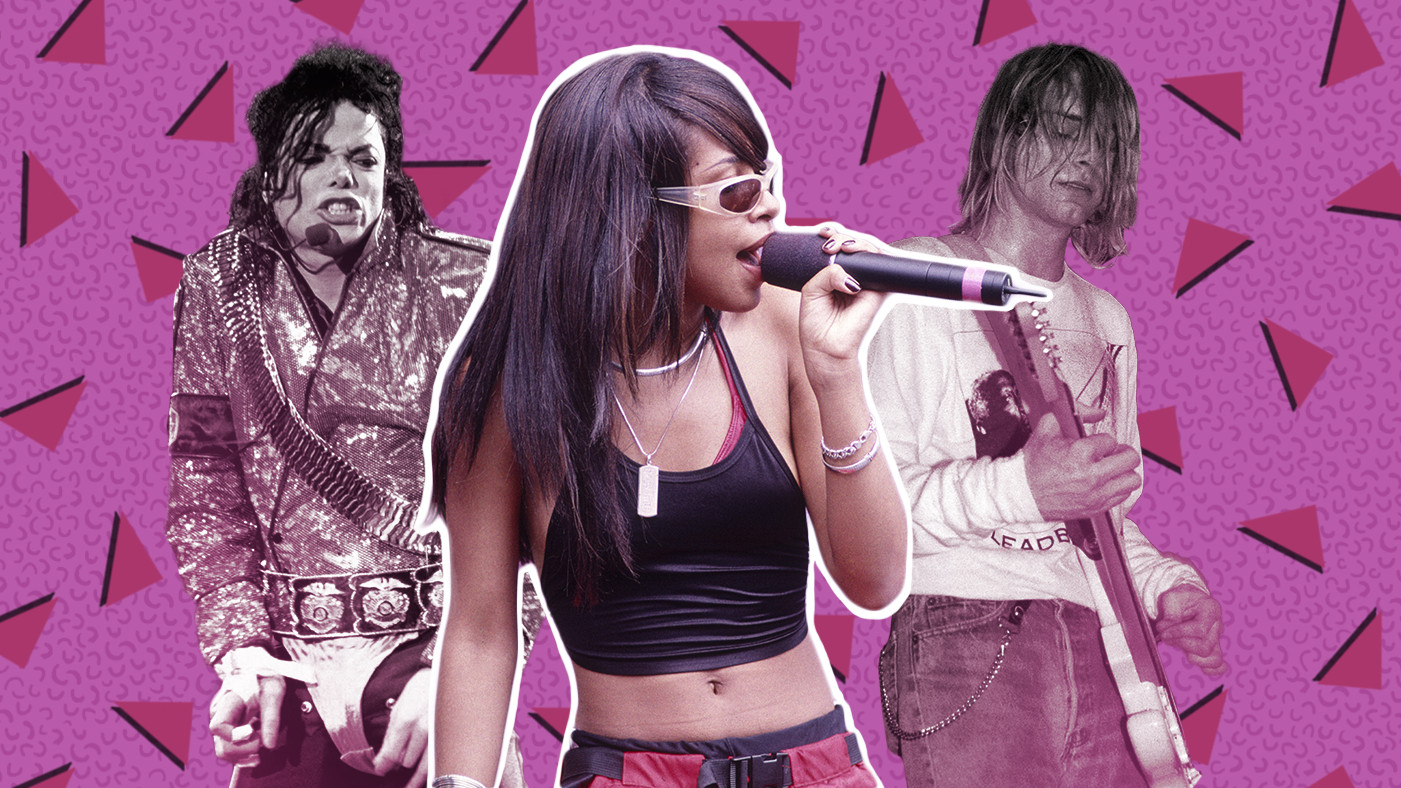 Oasis Wonderwall 90s Britpop anthem
Oasis Wonderwall 90s Britpop anthem
Noel Gallagher himself admitted he had no idea what a “wonderwall” actually was. Neither did anyone else. Yet, it didn’t matter then, and it doesn’t matter now. Oasis’ “Wonderwall” transcends meaning and becomes a communal experience. This Britpop anthem, with its singalong chorus and anthemic guitars, can transform any room into a raucous pub singalong.
Mobb Deep, “Shook Ones Pt. II” (1995)
“Shook Ones Pt. II” is hip-hop’s equivalent to the Rolling Stones’ “Gimme Shelter.” Mobb Deep, the Queensbridge duo of Prodigy and Havoc, deliver a stark and unflinching report from the urban battleground. In their world, vulnerability is a death sentence. “There ain’t no such thing as halfway crooks” became a defining line of 90’s hardcore hip-hop. Mobb Deep were the grittiest of the mid-90s East Coast crews, and their signature hit remains as chilling and relevant as ever.
Smashing Pumpkins, “1979” (1995)
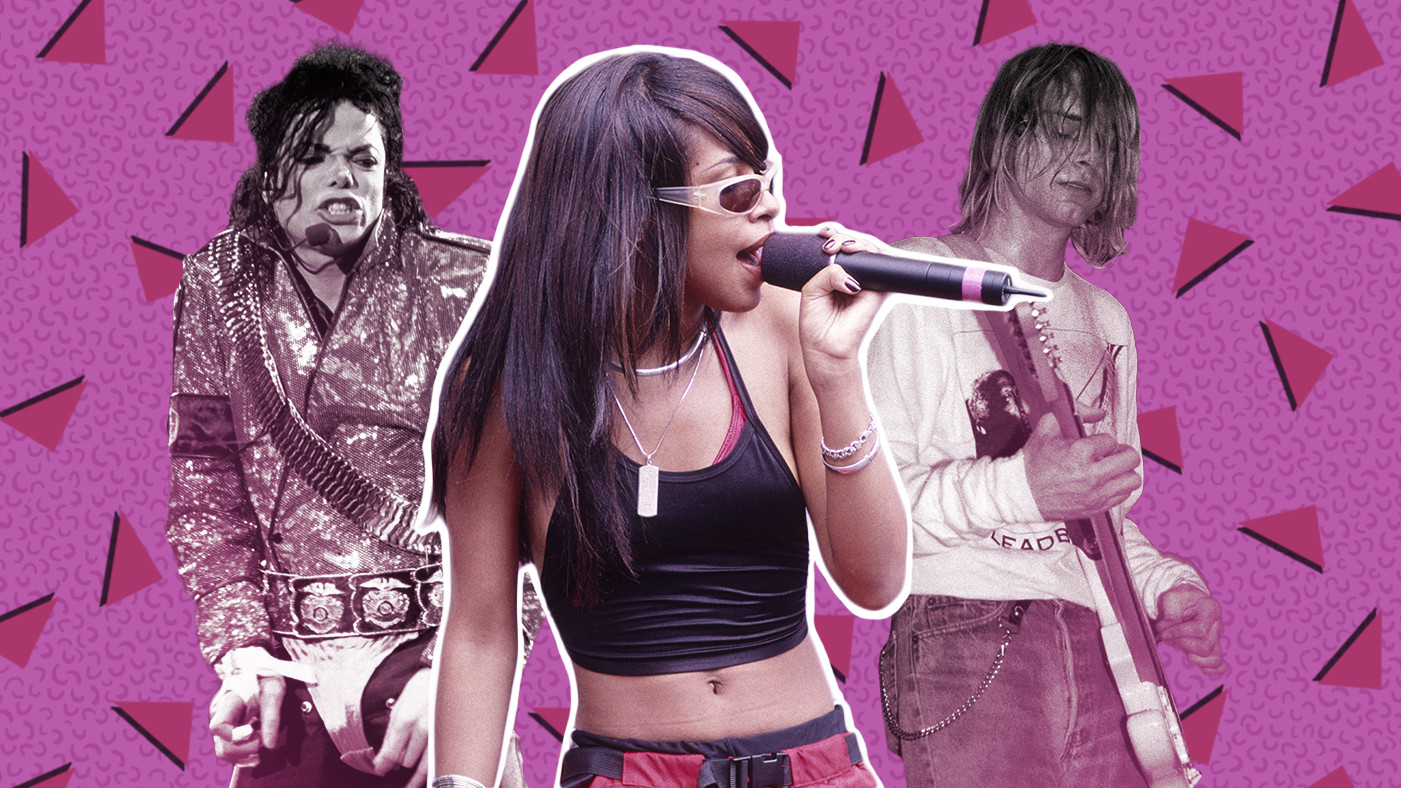 Smashing Pumpkins 1979 90s alternative rock song
Smashing Pumpkins 1979 90s alternative rock song
Billy Corgan’s “1979” is an evocative ode to the bittersweet pangs of a generic suburban Midwestern adolescent summer. Built around James Iha’s shimmering guitar riff, the song captured a universal feeling of youthful longing and nostalgia. Even Smashing Pumpkins skeptics couldn’t deny its brilliance. Famously covered by Pavement, “1979” embodies the feeling of fleeting youth and the rush of time passing, faster than the speed of sound.
Beck, “Loser” (1993)
Beck, the poet laureate of 90s slackerdom, emerged with “Loser.” The 90s were overflowing with self-proclaimed poets, but Beck stood out with his unique blend of irony and genuine artistry. “Loser” combines blues riffs, beatboxing, a leaf blower, and a bizarre video that playfully infringed on George Lucas’s copyrights. This track, a cultural touchstone of 90’s alternative, is best enjoyed with Cheez Whiz and a healthy dose of irony.
Whitney Houston Feat. Faith Evans and Kelly Price, “Heartbreak Hotel” (1998)
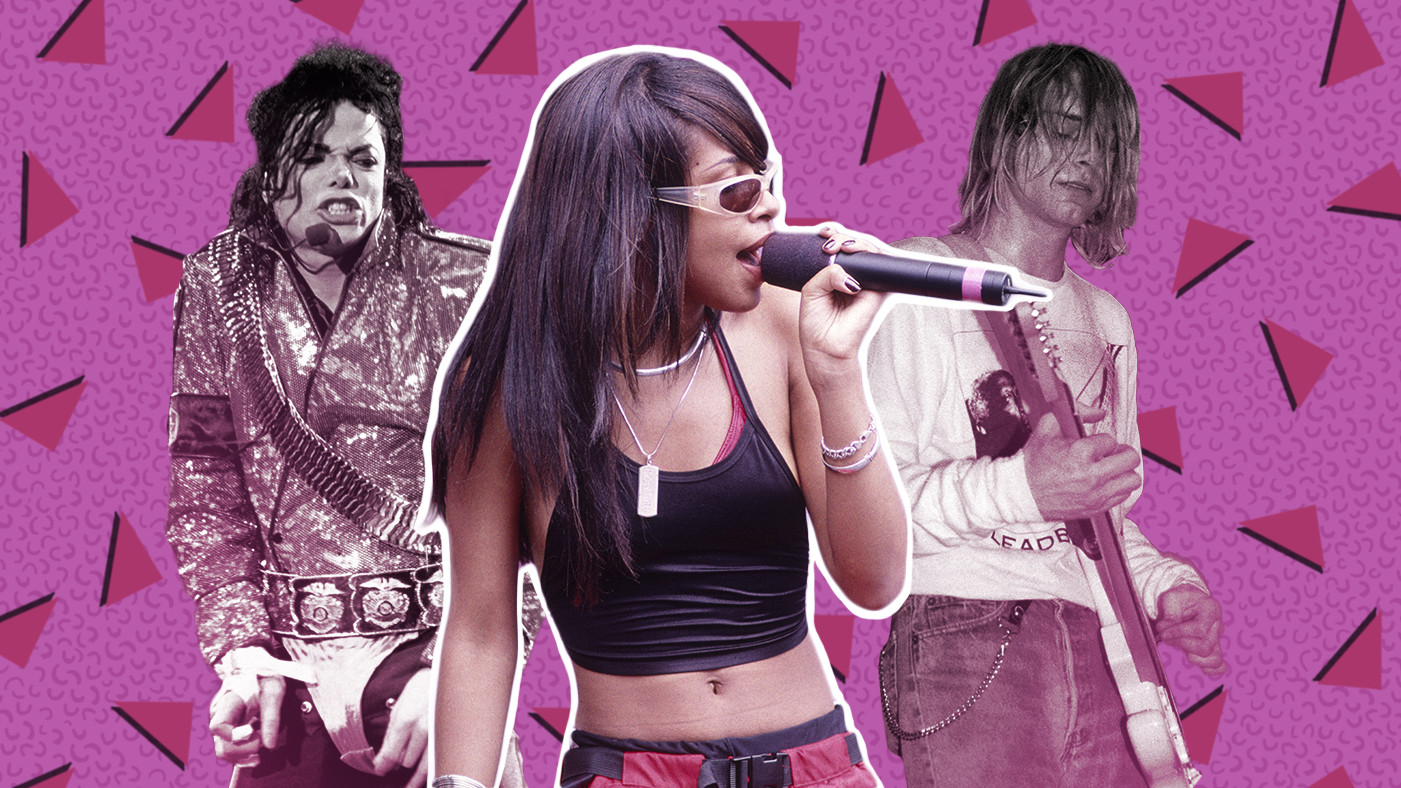 Whitney Houston Heartbreak Hotel 90s R&B song
Whitney Houston Heartbreak Hotel 90s R&B song
Whitney Houston, alongside Faith Evans and Kelly Price, delivered a powerful kiss-off anthem with “Heartbreak Hotel.” Whitney’s vocals build from hushed whispers to soaring high notes, showcasing her unparalleled talent and delivering a sweet taste of revenge. At the time, it felt like the beginning of a new chapter for Whitney. Tragically, it became more of an ending point.
Garbage, “Queer” (1995)
Garbage, fronted by Shirley Manson and produced by alt-rock legend Butch Vig, arrived with the unsettlingly alluring “Queer.” Shirley Manson’s haunting vocals, combined with Vig’s signature studio sheen, create a track that’s both seductive and unsettling. The whispered line, “You can touch me if you want/But you can’t stop,” perfectly captures the song’s enigmatic and slightly dangerous allure, a hallmark of 90’s alternative pop.
Beastie Boys, “Sure Shot” (1994)
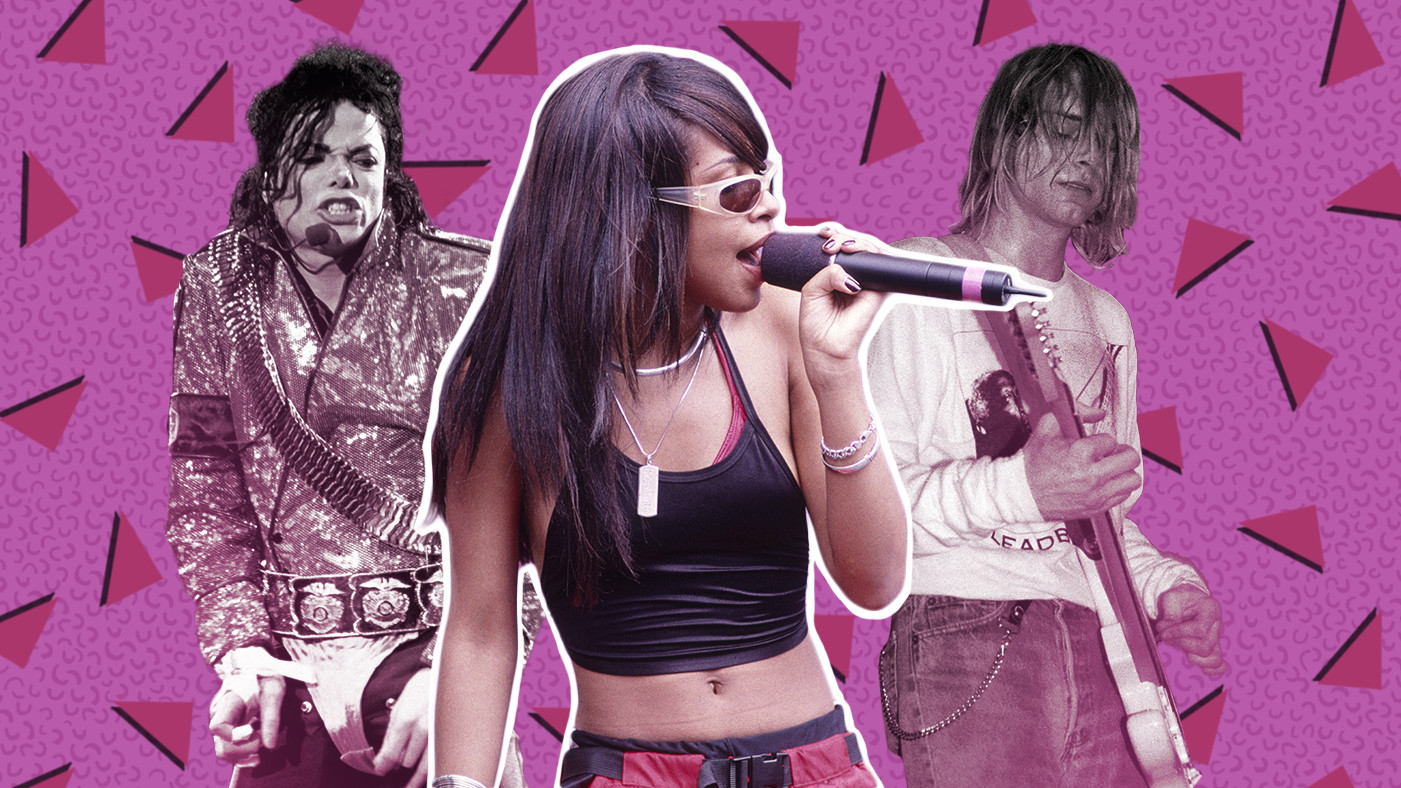 Beastie Boys Sure Shot 90s hip hop song
Beastie Boys Sure Shot 90s hip hop song
The Beastie Boys, masters of irreverent hip-hop, showcased their versatility with “Sure Shot.” Adam Yauch’s shout-out, “to all the mothers and the sisters and the wives and friends,” added a touch of unexpected warmth to their signature sound. “Sure Shot” is a testament to the Beastie Boys’ enduring appeal and their ability to blend humor, skill, and genuine heart in 90’s hip-hop.
Sleater-Kinney, “Get Up” (1999)
Sleater-Kinney, the Portland punk rock goddesses, captured the feeling of isolation and defiance in “Get Up.” Corin Tucker and Carrie Brownstein’s intertwined guitars create a soundscape as vast and powerful as a “bucket of stars dumped into the universe.” This track, a raw and empowering anthem, showcases Sleater-Kinney’s essential contribution to 90’s riot grrrl and indie rock.
Outkast, “Rosa Parks” (1998)
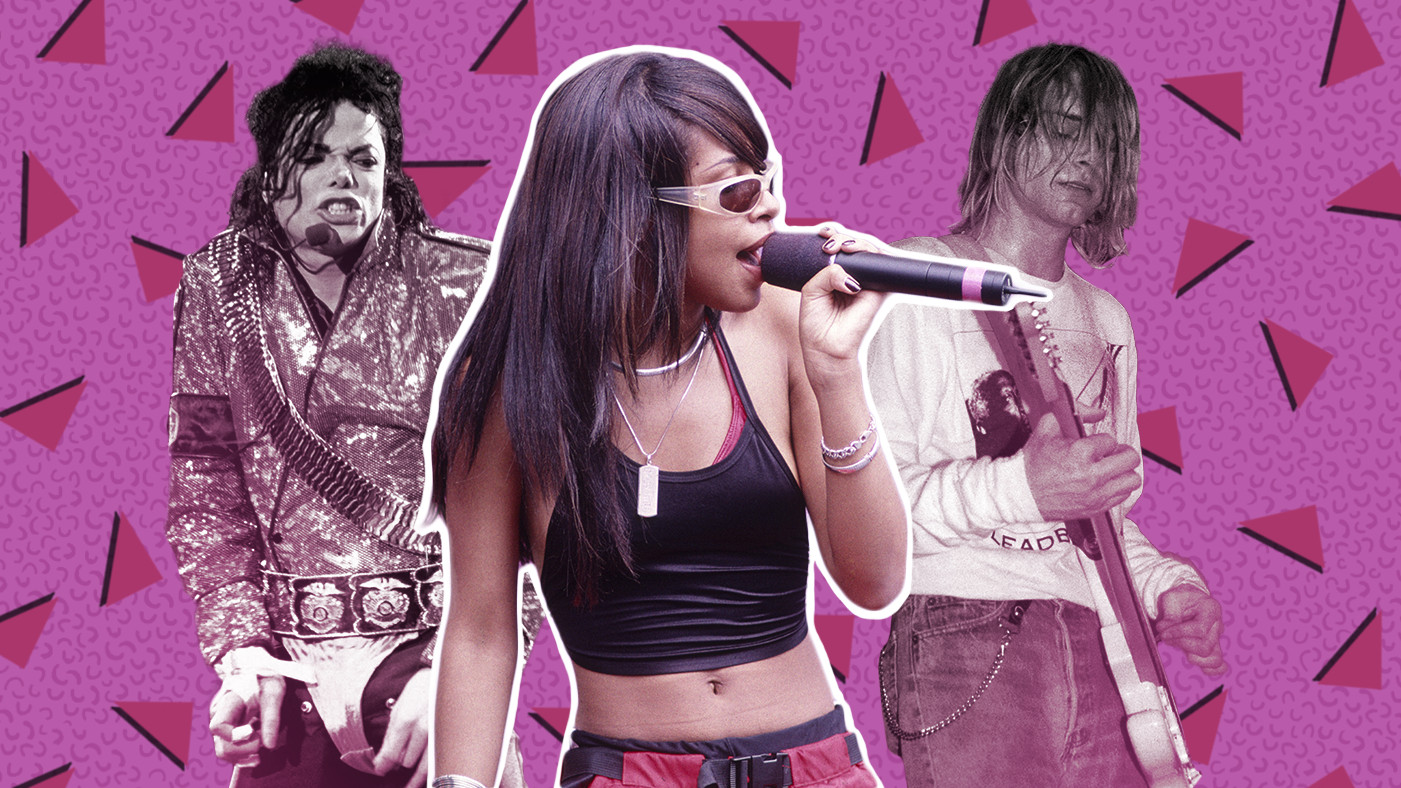 Outkast Rosa Parks 90s hip hop soul song
Outkast Rosa Parks 90s hip hop soul song
Outkast’s “Rosa Parks” became the definitive funky-bus jam of the 90s. Featuring the harmonica solo of the decade (sorry, Blues Traveler!), this track introduced the world to the unique sound brewing in the “dirty-dirty ATLien nation.” It was our introduction to “crunk” and the groundbreaking artistry of Big Boi and André 3000. “Rosa Parks” remains as innovative and infectious as it was in 1998, solidifying Outkast’s place in 90’s hip-hop history.
R.E.M. “Nightswimming” (1992)
Back in 1989, predicting R.E.M.’s continued dominance in the 90s might have seemed unlikely. Yet, the band delivered four consecutive classic albums, solidifying their legacy. “Nightswimming,” from Automatic for the People, is a bittersweet piano-driven reverie. Michael Stipe’s evocative lyrics paint a picture of skinny-dipping in the Georgia pines, a poignant attempt to hold onto fleeting memories before they fade. This track exemplifies R.E.M.’s ability to blend personal reflection with universal themes, a hallmark of 90’s alternative rock.
Ol’ Dirty Bastard, “Brooklyn Zoo” (1995)
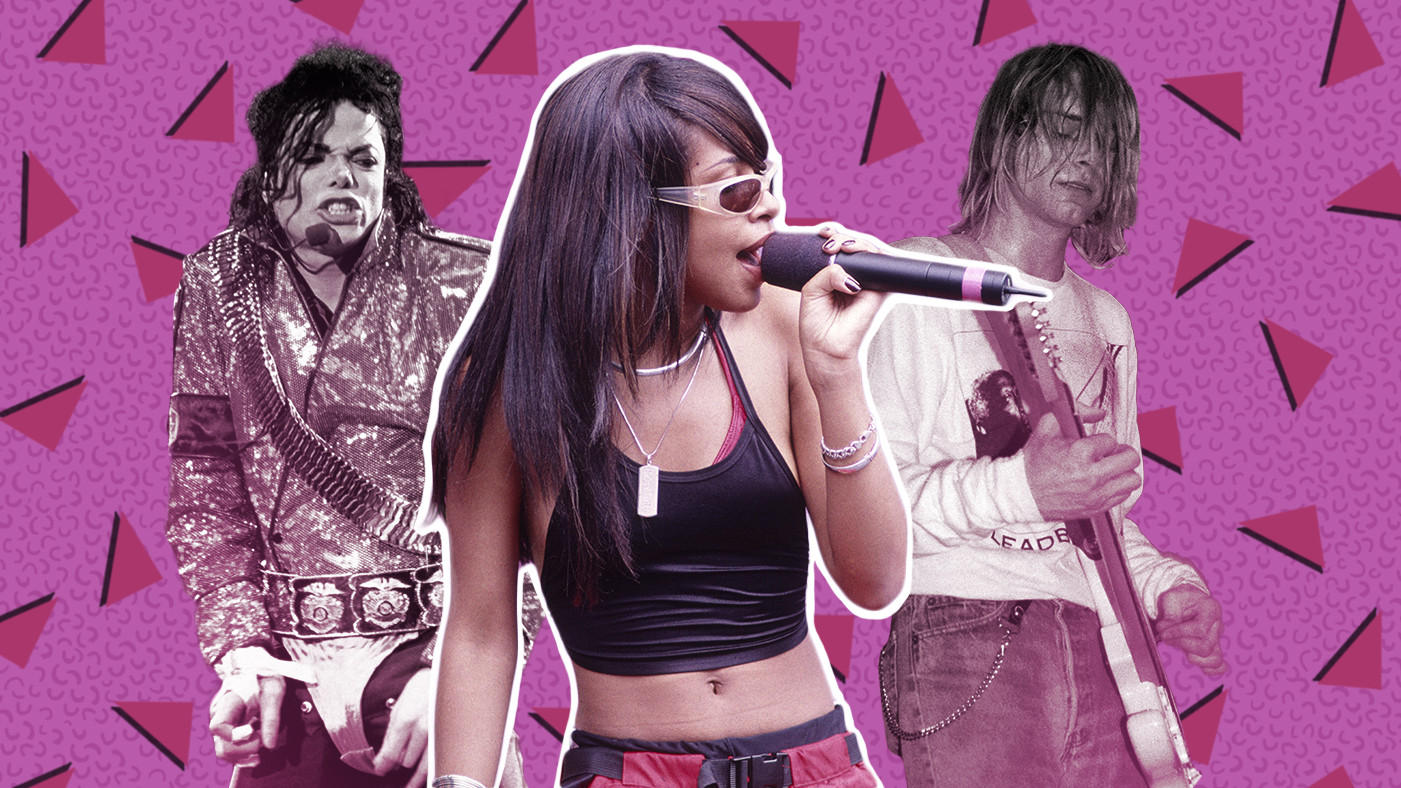 Ol Dirty Bastard Brooklyn Zoo 90s hip hop song
Ol Dirty Bastard Brooklyn Zoo 90s hip hop song
The Wu-Tang Clan universe was designed for complex, album-length narratives. However, Ol’ Dirty Bastard’s “Brooklyn Zoo” was their most successful and hilarious attempt at radio airplay. ODB, a.k.a. Big Baby Jesus, unleashes his chaotic energy over RZA’s broken piano keys. This track, a testament to ODB’s unpredictable genius and Wu-Tang’s irreverent spirit, proved that Wu-Tang really is “for the children” and for the radio waves of 90’s hip-hop.
The Breeders, “Cannonball” (1993)
Kim Deal, formerly of the Pixies, emerged with her band The Breeders and the wonderfully messy “Cannonball.” Featuring her twin sister Kelley on guitar, the song is a shaggy-headed, big-hearted explosion of alternative rock energy. “Cannonball,” with its unconventional structure and infectious energy, became one of the weirdest and most beloved radio hits of the 90s – and arguably any decade.
Hole, “Doll Parts” (1994)
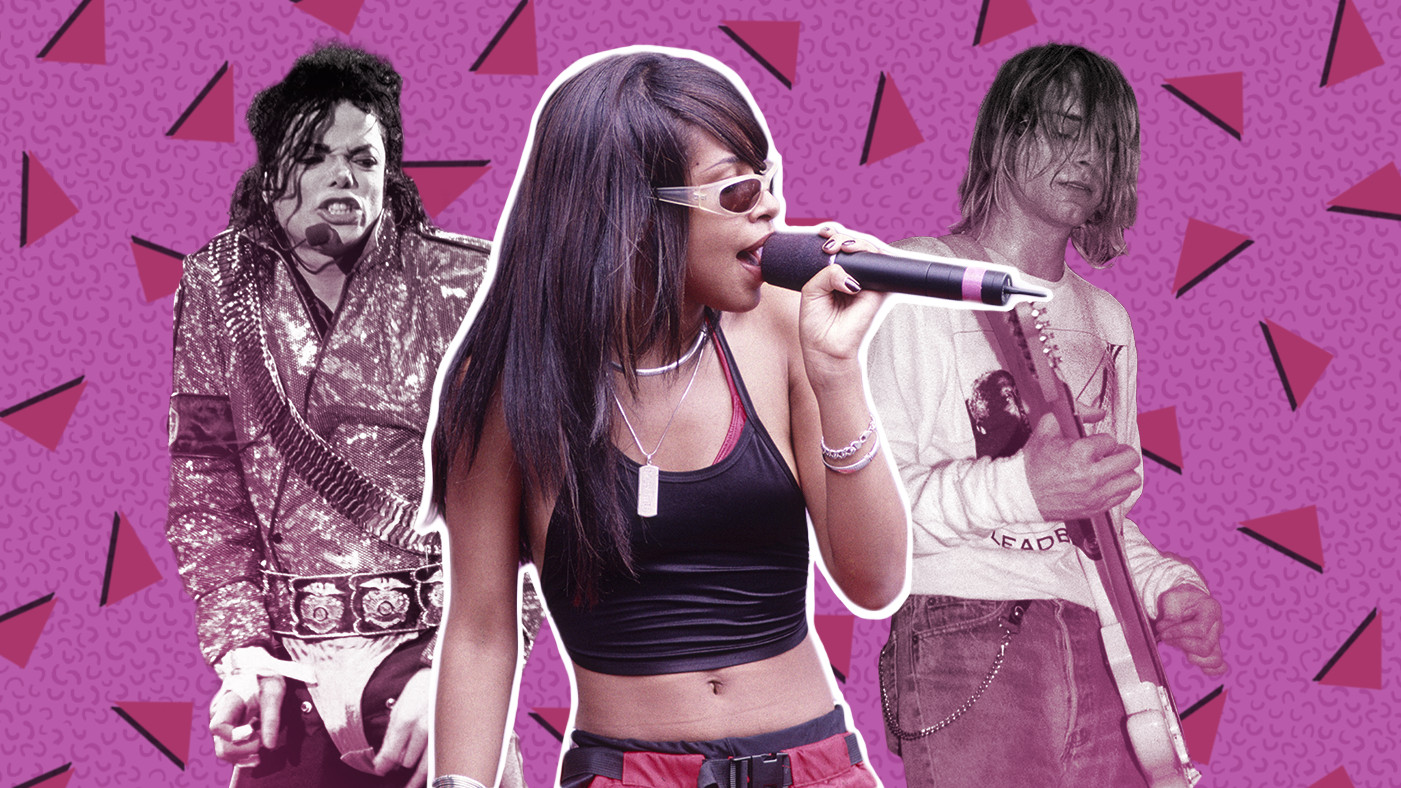 Hole Doll Parts 90s grunge pop song
Hole Doll Parts 90s grunge pop song
“Doll Parts” is arguably Courtney Love’s finest moment. This raw and emotionally charged ballad captures a deep sense of vulnerability and pain. The lyrics resonate with a universal ache, hinting at a mother’s hidden sorrow and the cyclical nature of heartbreak. Hole’s “Doll Parts” is a powerful and enduring example of 90’s grunge’s emotional depth.
TLC, “No Scrubs” (1999)
TLC, the crazy-sexy-cool Atlanta trio, closed out the decade they dominated with the hilarious and empowering “No Scrubs.” This anthem directly addresses “scrubs,” those undesirable men who are all talk and no action. However, the song’s message extends beyond just street harassment, becoming a broader statement of female independence and self-respect. Burn on, Left Eye, and burn on “No Scrubs,” a defining feminist anthem of 90’s pop and R&B.
Liz Phair, “Fuck and Run” (1993)
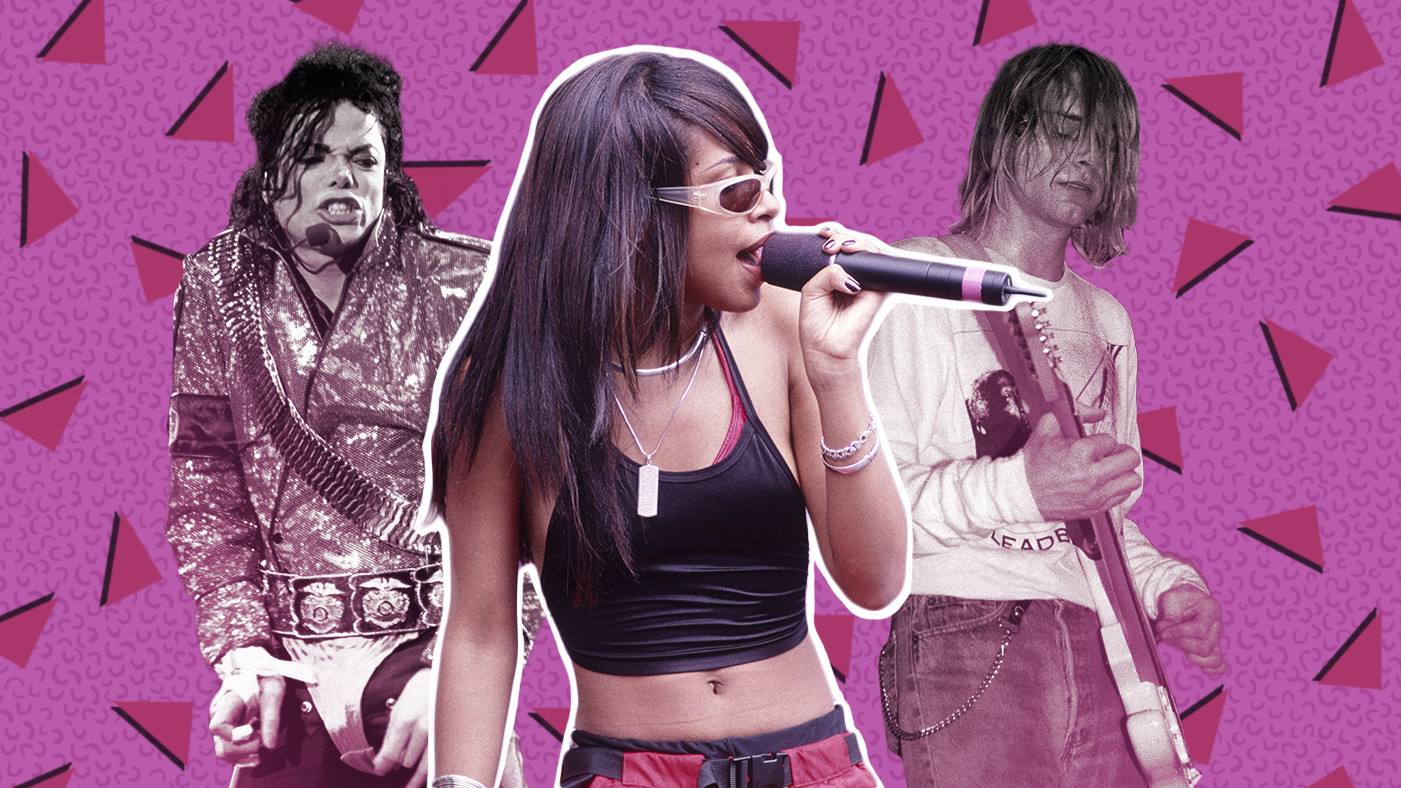 Liz Phair Fuck and Run 90s indie rock song
Liz Phair Fuck and Run 90s indie rock song
Believe it or not, 1993 had its own set of problems. Liz Phair’s “Fuck and Run” offers a brutally honest and relatable take on disposable relationships and fleeting encounters. Her plainspoken vocals cut straight to the heart, delivering a message that sadly remains timeless. “Boys only want love if it’s torture” – a sentiment that continues to resonate across generations, making this a crucial 90’s indie rock track.
Pulp, “Common People” (1995)
Jarvis Cocker, the frontman of Pulp, oozes more charisma and soul in a single breath than many singers manage in their entire careers. “Common People” is a Britpop masterpiece, brimming with sex, sarcasm, and a touch of despair, but mostly sex. This track, a witty and insightful commentary on class and desire, solidified Pulp’s place in 90’s Britpop and beyond.
Missy “Misdemeanor” Elliott, ”The Rain (Supa Dupa Fly)” (1997)
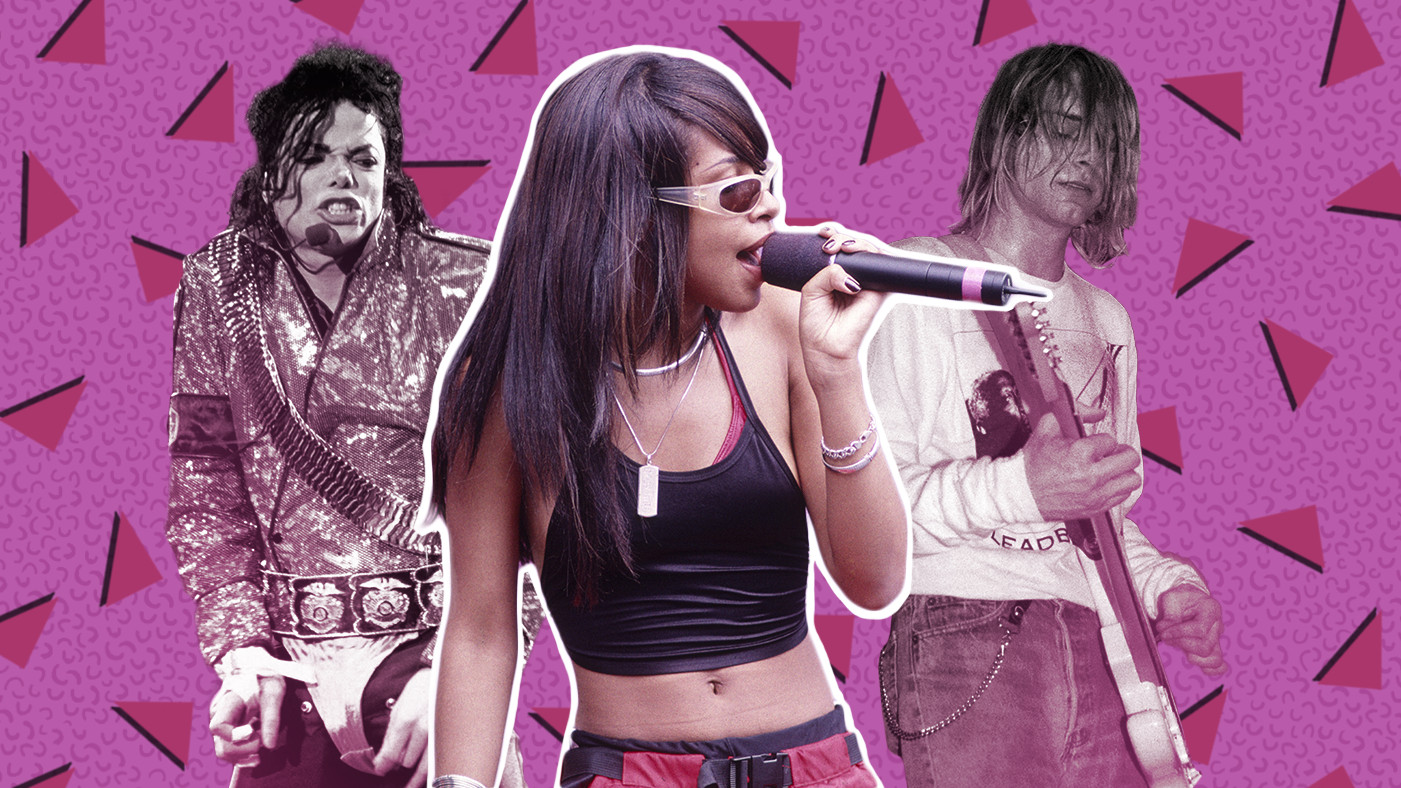 Missy Elliott The Rain Supa Dupa Fly 90s hip hop pop song
Missy Elliott The Rain Supa Dupa Fly 90s hip hop pop song
Missy Elliott and Timbaland, the dynamic duo who redefined 90s music, arrived with “The Rain (Supa Dupa Fly).” Together, they warped a 70s R&B sample into a steamy Southern night soundscape, complete with crickets and rolling thunder. Missy’s innovative flow and Timbaland’s groundbreaking production created a track that was both futuristic and deeply rooted in R&B tradition, changing the landscape of 90’s hip-hop and pop forever.
Pavement, “Gold Soundz” (1994)
Pavement’s “Gold Soundz” encapsulates the boyish urgency and emotional depth of the Beach Boys’ Pet Sounds, all within a tight three-minute package. Stephen Malkmus and his slacker-rock crew waste no time, packing every guitar twang and mumbled lyric into a perfectly crafted emotional surge. “Gold Soundz” is a testament to Pavement’s understated genius and their essential contribution to 90’s indie rock.
Dr. Dre and Snoop Dogg, “Nuthin’ but a ‘G’ Thang” (1992)
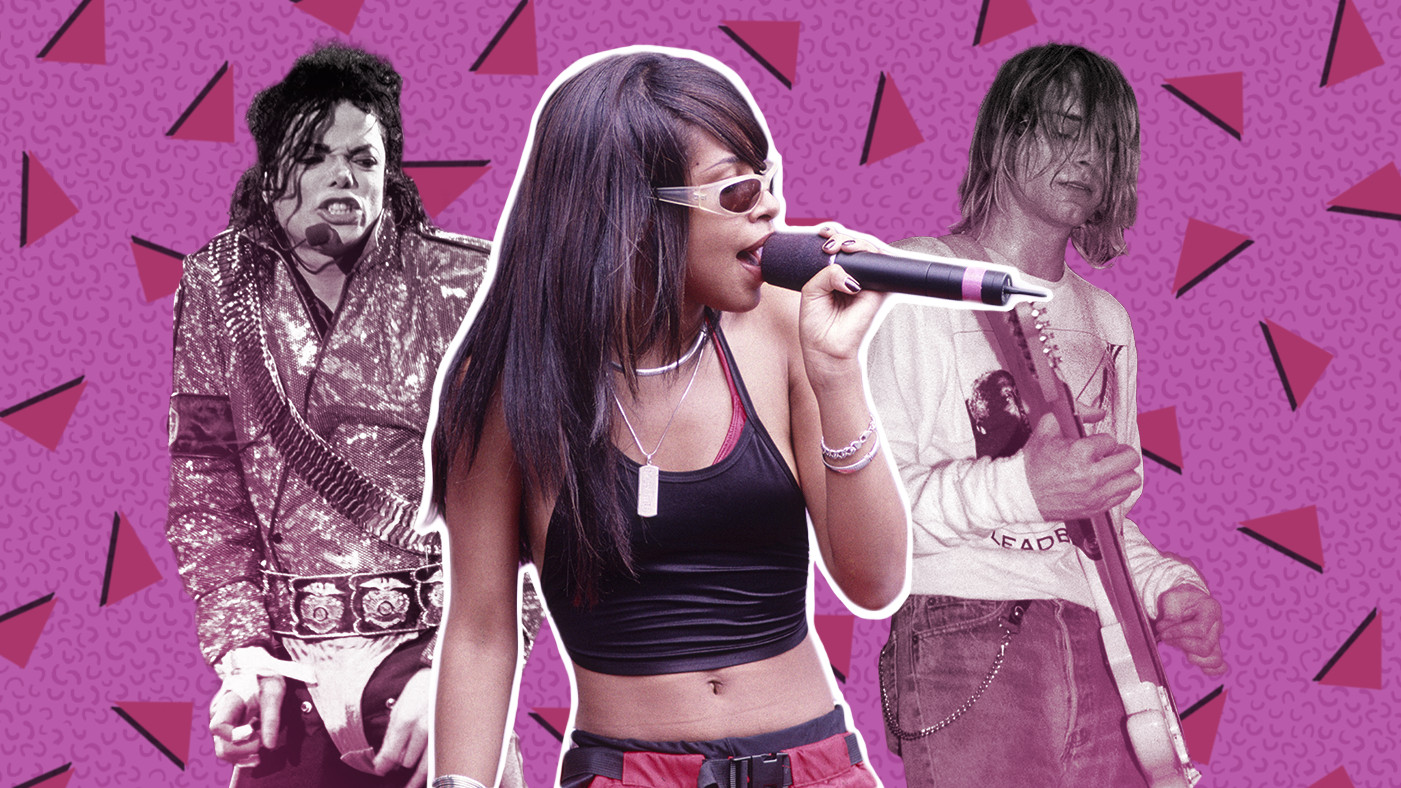 Dr Dre Snoop Dogg Nuthin but a G Thang 90s hip hop G-Funk song
Dr Dre Snoop Dogg Nuthin but a G Thang 90s hip hop G-Funk song
Dr. Dre, already a production legend from N.W.A., returned even stronger with “Nuthin’ but a ‘G’ Thang,” alongside the fresh talent of Snoop Dogg. This track, with its iconic G-funk groove, makes any car bounce and any head nod. The bassline, as real as “Real Deal” Holyfield, became the sonic blueprint for 90’s West Coast hip-hop, launching both Dr. Dre and Snoop Dogg into superstardom.
Bikini Kill, “Rebel Girl” (1993)
Bikini Kill, led by the ferocious Kathleen Hanna, along with their “token boy guitar player,” teamed up with Joan Jett to create “Rebel Girl.” This seven-inch single delivered on every radical promise punk rock ever made. “Rebel Girl” is an anthem for the neighborhood girl with revolution in her hips. Bikini Kill proved that rock & roll could be both politically charged and emotionally powerful, a defining moment for 90’s riot grrrl and feminist punk.
Notorious B.I.G. With Mase and Puff Daddy, “Mo Money Mo Problems” (1997)
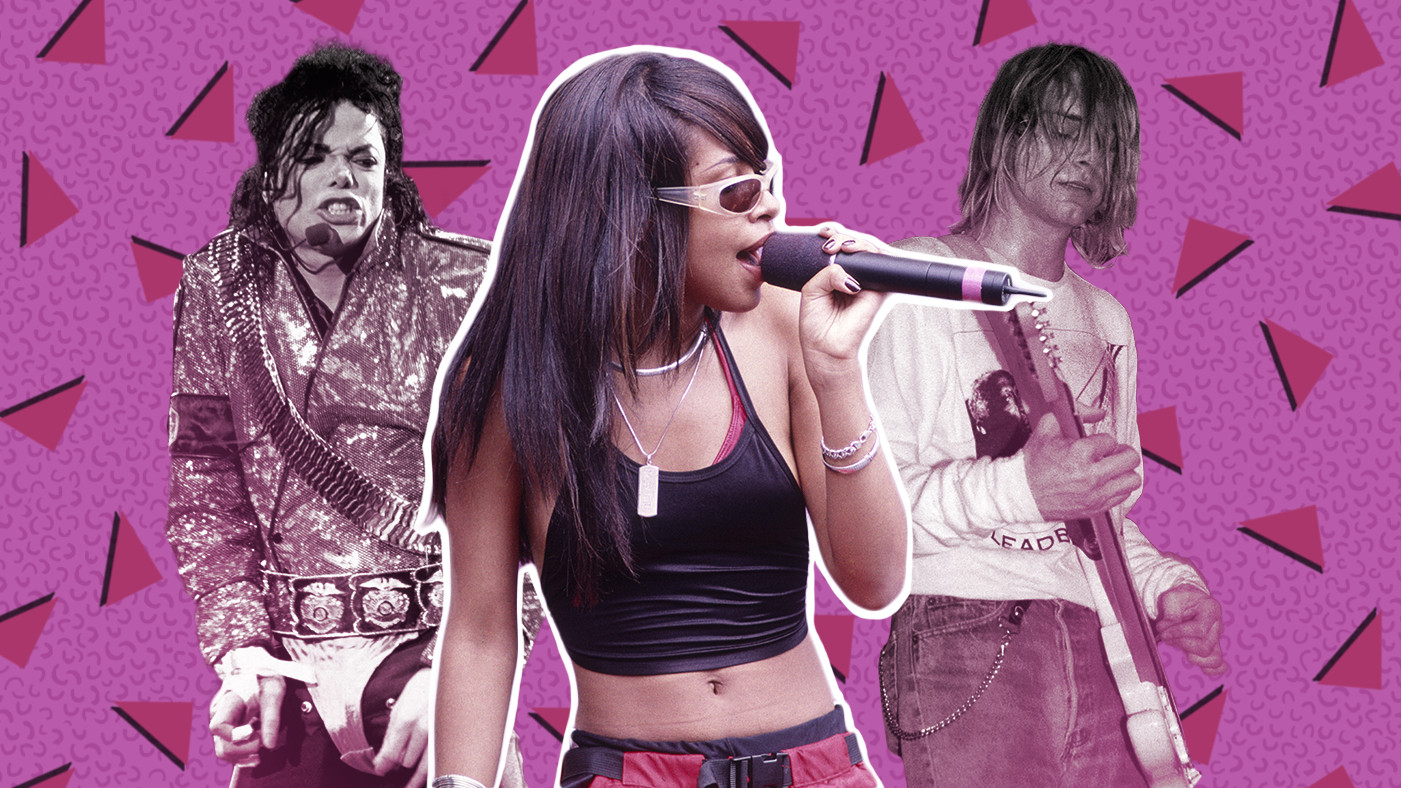 Notorious BIG Mo Money Mo Problems 90s hip hop pop song
Notorious BIG Mo Money Mo Problems 90s hip hop pop song
The late, great Notorious B.I.G.’s presence on “Mo Money Mo Problems” is undeniable. Biggie’s effortless charisma and flow are evident even in a simple throat-clearing before his verse. This track, featuring Mase and Puff Daddy, became an accidental epitaph, reaching Number One shortly after Biggie’s tragic death. Yet, it serves as a vibrant reminder of his immense talent and larger-than-life personality, forever solidifying his place in 90’s hip-hop and pop culture. Burning question: Did Mase ever get to see his name on a blimp?
Blackstreet, “No Diggity” (1996)
Blackstreet’s “No Diggity” is a utopian celebration of the best aspects of American music. Teddy Riley, a production genius from Virginia via Harlem, masterfully blends doo-wop harmonies, Dr. Dre-inspired beats, classic R&B vocals, a rumbling piano line, and a sample of Bill Withers’ acoustic blues guitar. “No Diggity” is a sonic tapestry of Black music history, and we are all living in the vibrant future this song envisioned, making it a timeless classic of 90’s R&B and pop.
Nirvana, “Smells Like Teen Spirit” (1991)
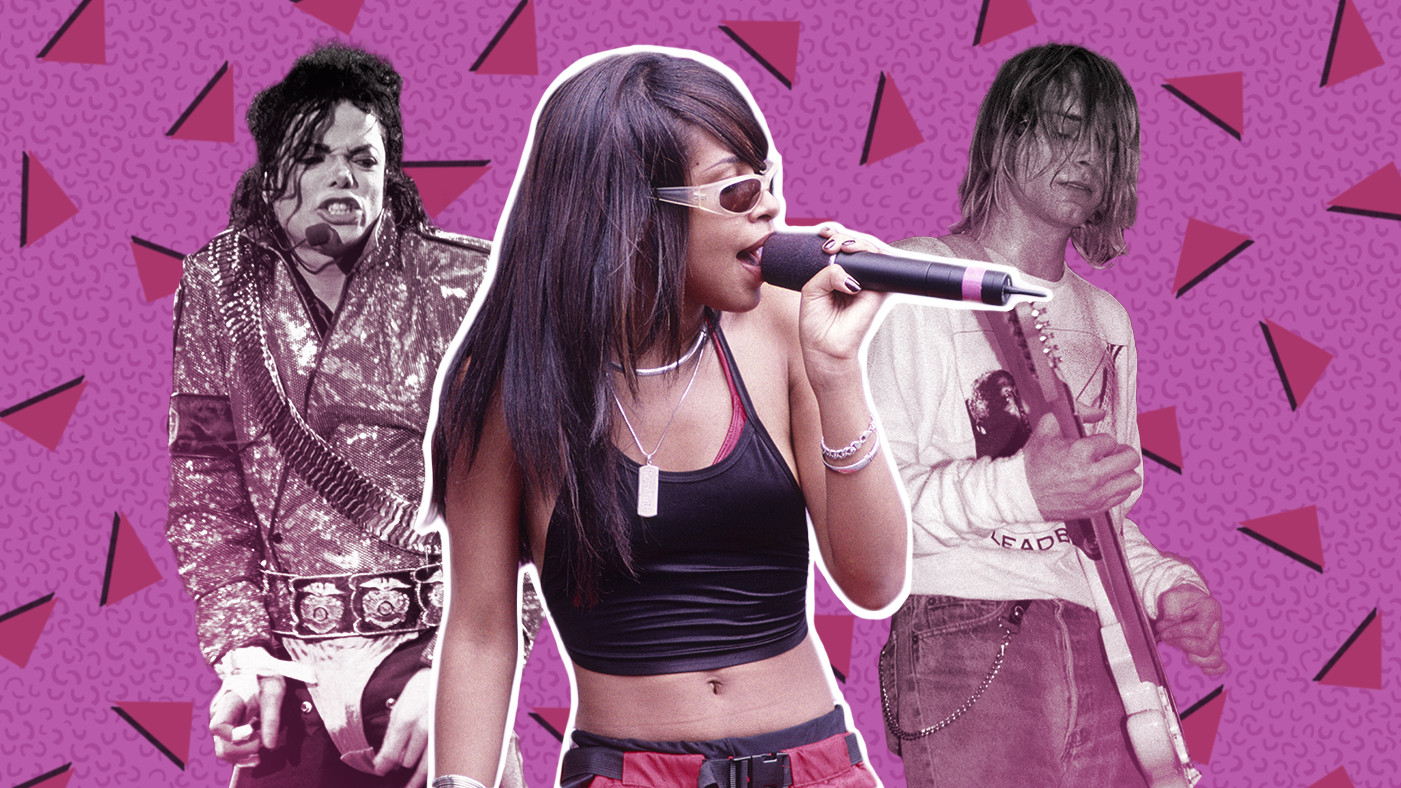 Nirvana Smells Like Teen Spirit 90s grunge anthem
Nirvana Smells Like Teen Spirit 90s grunge anthem
“Smells Like Teen Spirit” is the song that changed everything. It defied all conventional music industry rules, cramming raw emotion into four simple chords and a deliberately sloppy guitar solo. This anthem challenged complacency, shattered expectations, and kicked the future in the teeth. Kurt Cobain’s challenge to the audience in “Smells Like Teen Spirit” remains potent and relevant even after all these years, solidifying its place as the ultimate 90’s grunge anthem and a pivotal moment in music history.

